Tertullian's CornerA Book review of Liberalism and Its Discontents, by Francis FukuyamaBy Rosa Martha Villarreal There wasn’t a more opportune time for the publication of Francis Fukuyama’s book Liberalism and Its Discontents (Farrar, Straus and Giroux 2022) than now with the January 6th Congressional Committee hearings. The events of January 6th, reminded us that our constitutionally based system is not immune to the machination of those who wish to usurp the liberal order, which has been in place since the United States ratified the Constitution in 1788. Today, illiberal partisans speciously claim that they are actually defending the Constitution, but Fukuyama forcefully refutes those claims. In this book, Francis Fukuyama does not detail the historical rise of Liberalism. As he states, there literally thousands of books which do just that. Rather he focuses on the justifications of an institutional-based liberalism, a system of governance in which the body politic gives it consent to be governed by a strong state restrained by laws because, as Thomas Hobbes posits, the unifying human passion is not religious belief but fear of violent death. Before he delves into the justifications for liberalism, Fukuyama begins his book with an important caveat: "By 'liberalism,' I refer to the doctrine that first emerged in the second half of the seventeenth century that argued for the limitation of the powers of governments through law and ultimately constitutions, creating institutions protecting the rights of individuals living under their jurisdiction. I do not refer to liberalism as it is used today in the United States as a label for left -of-center politics; that set of ideas, as we shall see, has diverted from classical liberalism in certain critical ways." (vii) [ Italics mine] Fukuyama states that the justifications of a liberal society are that liberalism:
Fukuyama explains that there is an inevitable the tension between the idealism of classical liberalism and its actual practice. In the last 30 years this tension has been exacerbated by the economic inequalities wrought by Neoliberalism. First of all, economic inequality is not new as economic liberalism has always been predicated strong property rights. Property rights were central to the historical rise of liberalism since the philosophy’s creators and early practitioners were property-owning, middle-class individuals, the bourgeoise. And here lies an inevitable tension since, as Madison posits in The Federalist No. 10, this leads to a rise of social classes and a source of inequity, which subsequently caused the rise of Marxism. Recently, this on-going tension has been exacerbated by Neoliberalism. Neoliberalism, the economic school of thought led by Milton Friedman, Friedrich Hayek, et al, also called the University of Chicago or Austrian School of Thought, reasoned that deregulation, privatization, free trade, and higher immigration would maximize economic growth by allowing a free exchange of good, service, and workers. These changes would result in more competition which in turn would lower consumer prices. The free flow of labor would also contribute to lower priced consumer goods. Neoliberal policies, as Friedman et al predicted, brought a boon of innovation and creativity. These neoliberal policies represented the positions of not only conservative leaders like Ronald Reagan and Margaret Thatcher but left-center leaders like Bill Clinton and Tony Blair. But as Fukuyama points out, Neoliberalism’s shortcomings have had devastating, unintended consequences. First, the theory is predicated on consumerism, and yes, goods became cheaper and the economy was more efficient. However, jobs were outsourced and wages stagnated. Deregulation of capital controls, which had been instituted in the 1930s, precipitated the financial crisis of 2008. There were also global political consequence in places like Russia after the fall of the Soviet Union where the economic system went from central planning to none, precipitating the rise of corrupt oligarchs and Vladimir Putin’s dictatorship. In sum, although less regulated Capitalism did create enormous wealth, it did not create a healthy society for everyone. "They [neoliberals] failed to understand that markets themselves function only when there they are strictly regulated by states with functioning legal systems that have the capacity to enforce rules concerning transparency, contracts, ownership, and the like." (23) Additionally, good paying jobs for low skill workers were outsourced and job retraining programs failed to materialize. "Many neoliberals supported open immigration, again on the grounds that allowing labor to move to the point of greater demand would lead to greater efficiency They were again correct in thinking that labor mobility would improve aggregate welfare, but paid less attention to its distributional consequences and the social backlash it would inspire." (25) Besides intensification of anti-immigration vitriol, another consequent is the justifiable resentment against the gross disparities in income distribution. Fukuyama asserts that the average workers hurt by these policies do not find solace that workers in other countries or immigrants are better off at their expense. And I may add, I doubt they find it celebratory every time billionaires in over-sized, buffoonish cowboy hats take a ride into outer space. Fukuyama attributes the flaws of neoliberalism to oversimplification, a religious-like ideological fervor, and a misreading of human nature. On their own, capitalists will horde wealth because capitalists are humans and greed is part of human nature, which is why regulations are needed. Capitalism has overall elevated the wealth of many societies. But even when capitalism can benefit a large number of people, the beneficiaries react emotionally. They value cultural signifiers over affordability, best characterized by not wanting a Starbucks to replace a familiar café; they act in their self-interest; and desire the dignity of work. The backlash against immigrants, the rise of populism, and dangerously, the desire to “return” to an imagined idealized past threatens the very core of our social contract, the social order, the right to human dignity and self-determination as the disenchanted ones are willing to resort to violence. Adding to the discontent wrought by neoliberalism is the rise of illiberal ideologies on both the Right and the Progressive Left. This is abetted by technology and the flow of unvetted claims, conspiracy theories, and outright fake news. The distrust of empiricism, disdain of facts, and “motivated reasoning,” i.e., finding selective data to support an a priori doctrine, produces a limitless source of charlatans, grifters, and opportunistic politicians. On the Left, what started as a noble quest for equality for all in the social compact such as the sexual contract, correcting “the most rapacious forms of capitalism” (74) and the debunking of the assumed cultural superiority of Western culture, devolved into an obsession with group identity and irrational policing of speech. While Right-wing politicians demagogue the threat of Marxist Critical Theory or simply Critical Theory, it remains an exercise in the domain of academic political, sociological, and literary criticism. In other words, Critical Theory and Post Structuralism are intellectual exercises and not a mechanism of governance. It is true that Critical Theory is fixated with perpetual victimhood, historical power relationships, and stubborn focus on past wrongs, but it is not a danger to the social order because it does not advocate the imposition of a totalitarian system of governance. If anything, says Fukuyama, Progressive Leftism leans more towards anarchy. Thus, the Leftist program can be annoying if not downright silly, but it is not a threat to the liberal social order. The existential threat to the civil order and the individual’s right to self-autonomy comes from the Right, says Fukuyama. Although the Right appropriated the Far Left’s disdain of facts and fixation with (in their case, white) identity politics, they never intended to defend the liberal order but preserve their own power in a zero-sum game where the triumphalist narrative of White American Exceptionalism remained dominant even at the expense of depriving some citizens of their full rights. However, if there ever was a constant, said Heraclitus of Ephesus, it is change. Modernity and liberalism disrupted the traditional ideas of “religiously based morality” and especially its regulations of sexual behavior. Fukuyama correctly states that the antipathy to change is not a particularly a Christian phenomenon but applies most of the major faiths around the world. Traditional nationalism, too, has diminished as more and more educated people identify with like-minded people around the world. This cosmopolitanism is disdained by the American Right as un-American. "In some corners of the American Right, unwillingness to tolerate diversity extends not only to fellow citizens of the wrong race, ethnicity, or religion, but to broad groups of people who actually constitute a majority of the population." (118) Here Fukuyama quotes Glenn Elmers of the Claremont Institute that even liberally inclined white Americans are not considered real Americans by the Right but rather “citizen aliens” (118). The Right is dangerously willing to use state power and violence to impose their ideological vision of a 19th century America and coerce others into their definition of Americanism. They fail to see that the changes they are so threatened by are manifestations of the political evolution that sought to fulfill the promise of liberalism, which is freedom and equality for all as the Pledge of Allegiance says. In his last two chapters, “National Identity” and “Principles for a Liberal Society,” Fukuyama refutes the criticisms of liberalism from the Left and the Right. "Progressives for their part will have to accept the fact that roughly half the country does not agree with either their goals or their methods, and they are unlikely to simply overpower them at the ballot box anytime soon. Conservatives need to come to terms with the country’s shifting racial and ethnic mix, the fact that women will continue to occupy the fullest range of positions, both professionally and privately, and that gender roles have changed profoundly. Both sides quietly entertain hopes that a large majority of their fellow citizens secretly agree with them and are prevented from expressing this agreement only through media manipulation and false consciousness propagated by various elites. This is a dangerous dodge that simply allows partisans to simply wish diversity away. Classical liberalism is needed more than ever today, because the United States (as well as other liberal democracies) are more diverse than they ever were." (146) Finally, Fukuyama argues that there are no other just governing alternatives to liberalism; that its perceived weaknesses—its institutions of checks and balances that slow the implementation of new legislation, its deconstruction of the old binds of traditionalism and religion, its impersonality--are its strengths. A liberal society creates order while simultaneously protecting its citizen from external threats by “creating a powerful state, but then constraining that power under the rule of law” (130). More than ever, the principles of liberalism need to be affirmed and strengthened. This takes hard work--freedom isn’t free. We must take certain steps to safeguard liberalism and here is why. First, there is a need for government because it provides critical public services. The size of government is not the critical issue but the its quality and its impersonality, i.e., it must treat citizens as equals. This government, moreover, must be manned by well-educated professionals. Second, a quality government must regulate the economy but not hinder its growth engine and creative incentives in the process. But there must be a degree of regulation and income redistribution to protect against political backlash and unrest. Additionally, to secure the domestic peace, the government and liberal institutions must guard against “state rights” that seek to alienate citizens from their rights by hindering their access to the ballot box, gerrymandering, and, now, forcing women to give birth. Third, free speech needs to be defended because free thought is implicit with speech. However, there are limits because of norms and empirical facts. Furthermore, free speech originates with the right to privacy. There is no “right way to think,” contrary to what the Right and the Progressive Left posit. Finally, the rights of the individual take primacy over the cultural rights of groups because individualism is a universal value and not a construct of Western culture. Rather individualism is a by-product of socio-economic modernity, be it in Western Europe or South Korea. Although we members of groups based on heritage, ancestry and such, we have individual agency, and individual agency takes precedence over the group. Fukuyama closes his book with the admonishment for the political leadership and its individual citizens to distance themselves from extremism. As the ancient Greeks said: “nothing in excess” (154). "Moderation implies and requires self-restraint, the deliberate effort not to seek the greatest emotion of the fullest accomplishment. Moderation is seen as an artificial restraint on the inner self, whose full expression is said to be the source of human happiness and achievement." (154) This book is a timely reminder of principles of the nation and why those principles are under attack and must be defended. Fukuyama reminds his readers that the nation was founded on the philosophy of classical liberalism not a specious White nationalist narrative as espoused by the Right nor the victimhood narrative of the Left. It’s accessible writing and straight-forward argumentative style make for a quick but dense, thought-provoking reading and one that every citizen should read.  Rosa Martha Villarreal, recently retired as an Adjunct Professor at Cosumnes River College in Sacramento, California, is author of several important novels including Doctor Magdalena, The Stillness of Love and Exile, and Chronicles of Air and Dreams. The name for her column, Tertullian’s Corner, comes, she says, from the time when liberal, i.e., free thinking, people were persecuted by the Catholic Church. So young men (and women) would gather in some corner of a monastery under the pretense of discussing the Church Father, Tertullian. Thus, the tertulia was born.
1 Comment
Welcome to My Worlds |
| Mamá me dijo que estaba sentada en el regazo de su madre y que le agárro su trenza pero estaban tan chiquita que no podá pasarle la mano por la trenza. Mother [Juana]told me she was sitting on her mother’s lap and grabbed her braid but that she [Juana] was so little that she couldn’t wrap her hand around the braid. |
In 1894, when Juana was 21, she married my great-grandfather who was twice her age. Our family has speculated for decades about the reasons for that marriage because in reality she could have married a man closer to her age and remained on the hacienda, worked as a cook like her mother, where, at the very least, she would not go hungry. Was she molested as a young woman? At 43, my great-grandfather Marcos had no avenue to elevate his economic status. Yet she took on this life of transient poverty. The birth records show their children born in different ranchos, as the hamlets are called. My grandmother Carmen, although her birth was registered in Arandas, Jalisco, was born in Aguascalientes. I have a photograph of Juana Vazquez some 30 years after her marriage. The picture shows the obscene ravishments of poverty and hunger. I took that picture and used a face app to see what she was like as a young woman. She was beautiful, with the strong hints of Moorish or African ancestry. I don’t have the heart to share the original, unaltered picture, but even the transformative powers of technology cannot erase the look of hard poverty from her eyes.
| Papá nos depertaba en la madurgada. Trabajabmos todo el día, y nunca fui a la escula. Solamente recuerdo una vez cuando jugamos. Father would wake us in the early morning (while it was still dark). We would work all day, and I never went to school. I can remember only one time when we played. |
The years went by, the war continued, but now my great-grandparents had to hide more than just food. Carmen was now an adolescent. Those were dangerous times for women, but young women were especially vulnerable. Many women of my grandmother’s generation suffered the fate of being kidnapped and raped by men, both soldiers and revolutionaries. Elena Garro’s The Recollection of Things to Come and Carlos Fuentes’s The Death of Artemio Cruz both depict this heinous crime though Fuentes insults women’s intelligence by suggesting that the woman in his novel falls in love with her rapist. Determined that their daughter would not be carried off as a sexual toy, my great-grandparents and their sons would dig a make-shift cellars under in the huts and cover them with the trunk or the sparse furniture they carried with them. My grandmother remembers hearing the footsteps of the men above her as they rummaged through the house.
By the early 1920s, the family migrated to the outskirts of Nava, Coahuila. They set up camp near my maternal grandfather Pedro Apolinar’s farm. A generation before, the Apolinar family had likewise migrated there from Nadadores, which was one of the original Tlaxcatecan towns of Coahuila. My great-grandfather Pedro Apolinar Galan, a water witcher, had dug a well on the farm his son would later purchase. My grandfather was working his fields when the Hernandez Family asked his permission to water their herd at his well. My grandfather was a generous man who always said, yes, having never forgotten his own humble origins.
Before long, Carmen caught my grandfather’s eye, and he proposed marriage. The Hernandez brothers and mostly likely Doña Juana were opposed. My grandfather Pedro was a widower with three children, and for centuries the people of Los Altos resisted marriage to Indians, or in the case of my grandfather, dark-skinned mestizos. In Jalisco and Nuevo Leon, where there was a higher concentration of ethnic Hispanics, white women always married white men. But the farther north one went, racial mixing through legal unions was more prevalent. The centuries old wars with the Chichimecas had reduced the pool of marriageable men. The records reveal many white women, denoted as “Española” marrying Mulattos, Mestizos and Indians.
My great-grandfather Marcos let his daughter decided. “Do you want to marry this man?” he asked. Carmen said, “Yes, because if I marry him, my children will never go hungry.” Later, my Grandmother Carmen told me, “All of my babies came out fat and healthy because Pedro was a great provider.” My paternal grandmother Felicitas remembered their wedding day.
| Carmen se miraba tan bella. Pero Pedro no le hacía pareja. Carmen looked so beautiful. But Pedro didn’t match her looks. |
| Mi guelito estaba sentado en la cama. Me dijo, “Tráeme mis zapatos, mi hijita.” Eran los botines del retrato. Y otra vez, cuando hacia mucho calor y mama estaba cocinado en la chimenea para papa y los oberos, mi guelito le compro pan y le dijo, “No hagas tortillas, hija. Darles pan para la comida.”. . . Mi guelito era muy buena persona. My grandpa was sitting on the bed and said to me, “Bring me my shoes, child.” The were the same booties from the picture. Another time, when it was very hot and Mama was cooking lunch for my grandfather and his laborers in the open-hearth, Grandpa [Marcos] bought some bread. “Don’t make tortillas, child. Let the men eat with bread instead.” . . .My grandpa was a very kind-hearted person. |
“What happens to the remains of those who are there?” I asked.
“We put them back in there.”
My mother and I contemplated buying the gravestone, but it would take weeks, perhaps months, for it to be engraved. There was no one I could rely on to follow up. The pantoneros insinuated it wouldn’t make a difference. “Unless family is here to look after their dead, we just use the old gravesites for the new dead, gravestones and all.” I could then understand why families had cement slabs poured over their loved one’s graves.
Juana died in Santa Clara, where her youngest son had made his life decades before. I met her once. I was about four years-old, and she is more like the vanishing images of dreams before waking. “Esta es mi hija, matio” said my mother, calling her grandmother by her nickname. The old woman took my hand. It was cold and pale.
“Tell me I’m not going to die, Octaviana,” implored the old woman.
“No, Matio,” said my mother. “You’re not going to die.”
No one dies until one is forgotten. I made sure that she and Marcos live on in the volumes of the written word.

While you're here, check out a review of our first publication, Insurgent Aztlán
Tertullian's Corner
"If the desert were a correlative for a philosophy, it would be Existentialism."
The Desert Memoirs
Part I: Rosales
My husband and I purchased some land in the Nevada high desert with the intention to make it into a “ranch.” On our land there are several ancient rock outcroppings from the volcanic activity of eons ago. I call my favorite rock formation, “Castle Rock,” because it reminds me of the tower foundations of European castles. From the top of Castle Rock, one can see the panorama of the land. This arid and harsh wilderness, so similar to the extremadura of Coahuila, nonetheless supports a diverse and hardy fauna, creatures who can sniff out the sparse natural springs and exist on the desert’s meager bounty of edible plants. As if possessed of preternatural abilities, they find shelter in the lightning storms and elude the hunters: wolves, coyotes, humans, and big cats. They are the creation of evolutionary natural selection in an unforgiving environment.
I like to think of the desert people like these intrepid and resourceful creatures who thrive on the edge of the world, exiles from the easy riches of the earth. They, like Milton’s Satan, are the masters of the geographic hell.
From Castle Rock, one can see a herd of antelope rapidly moving across the plain, or skittish horses, or the confidently serene donkeys. But the most ubiquitous animals are cattle. Our land is surrounded by the public lands of the Bureau of Land Management. Cattle graze freely and traverse into our land. We don’t mind the free fertilizer so we never press the ranchers to pay the grazing fee.
Whenever I see the cattle roaming about, I think of my maternal grandfather Pedro Apolinar. Besides farming grains on his tracts of land, my grandfather owned herds of dairy goats and sheep. Just like the cattle ranchers of Nevada, my grandfather used to take his herds out to an open, public range to a place called Rosales, south of Allende, Coahuila. The herds would stay out for long periods of time, so my grandfather would take wagon loads of supplies for the herders. On many occasions he’d take the family to camp out in the desert. Rosales was a half a day’s drive by wagon from the family home Nava. My mother would recall those memories in the manner of the myth-makers of bygone eras, stories filled with the same wonder of peoples who invented gods and tales to explain the physical universe. The Nevada desert evokes those bygone memories as though they were mine.
| Salimos muy temprano en la mañana y llegamos en la tarde. Había un jacal de piedra donde nos quedábamos. La casa tenía un techo de paja, pero la mitad del techo estaba caído. En la noche hacia tanto frio que habían carámbanos en las vigas y sobre las ventanas. Yo iba y cojía los carámbanos y se los traía a mamá. We’d leave [the house in Nava] very early in the morning and wouldn’t get there until well into the afternoon. There was a stone hut where we’d stay. It had a straw-thatched roof but half of it was fallen in. The nights were so cold that icicles formed on the rafters and the windows. I used to break them off and take them to mamá. |
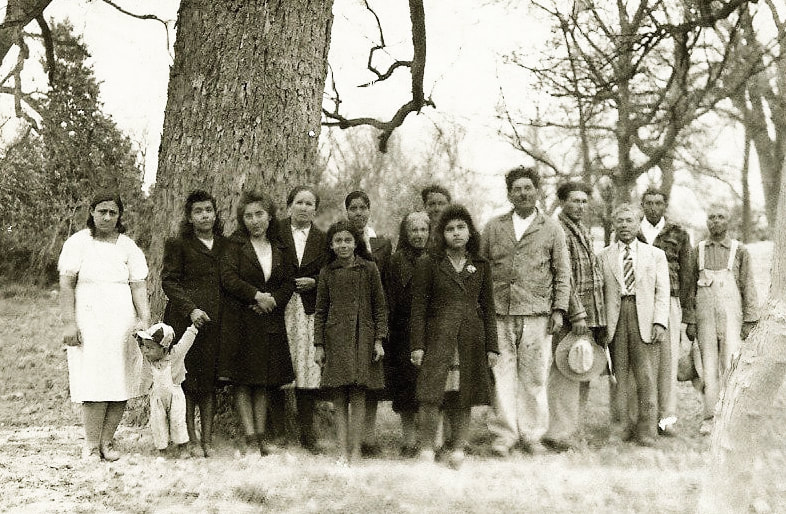
| “Les voy a contar un cuento medio chistoso,” dijo Ventura. “Una vez cuando estaba trabajando en ----, tenía una mujer. Le dije que le iba dejar algo cuando me fuera. Cuando montante mis cosas en el caballo para irme, le dije, “Ven acá para darte tu regalo.” Cuando se acerco, le corte la cara de los dos lados con mi navaja de resurar.’ Y papá le dijo, ‘Si te atreves hacerle un mal a unos de los mios, te juro que te mato.” “¡O no, jefe!” dijo Ventura. “Nunca haría eso.” “I’m going to tell you a funny story,” said Ventura. “Once when I was working at--- (place name forgotten), I had a woman. I told her I’d give her something when I got ready to move on. When [the day came to leave and] I was done loading my horse, I told her, “Come here so I can give you your gift.” When she got close enough, I slashed both sides of her face with my razor.” Papá then said, “If you ever dare to hurt one of mine, I swear I’ll kill you.” “Oh, no, boss!” said Ventura, “I’d never do anything like that.” |
Sometime after that incident, my grandparents went out to Rosales again to bring fresh supplies to the herders. My grandfather noticed some of the animals had separated from the herd and were wandering in the horizon. He immediately set out to retrieve them, and it wasn’t long before Ventura was facing down my grandmother. My mother recalled the moment with terror, as if she were re-living that moment. She remembered his eyes, how they shifted about, a hint of a smile forming on his lips.
“Where’s the boss?” He asked my grandmother.
“Por hay anda,”my grandmother said, meaning close-by, just out of sight.
He looked around quickly. “I don’t see him.”
“He’s here,” she said self-assuredly. She, too, had grown up in desert during the time of the Revolution when young women, especially a young white woman like herself, were the target of rapacious men, revolutionaries and federales alike.
Ventura looked around again, but my grandmother’s cool steadfastness
discouraged him. He took a step back, perhaps remembering my grandfather’s willingness to use his gun. My mother said that when he stepped back, it was as if all of his weight were going forward and he had physically hit a wall. It was unmistakable what he intended to do.
Like all of the transient men of the desert, Ventura was gone not long after.
Even today, straying too far from the springs and troughs can be deadly for cattle. The cowherds guide the cattle back to the ranches or natural springs or to the water troughs. Recently, a cowherd poached some water from us for his herd. He may have been drinking and delayed guiding the cows to their water source. We weren’t mad. The few humans of the desert look out for each other. Natural law prevails for good and sometimes for evil.
 Pedro Apolinar Jr., about 16 years-old
Pedro Apolinar Jr., about 16 years-old “Don’t kill me,” pleaded Pedro Jr.
“I’m not leaving a witness,” the bandit said, and he surely would have fired a shot had not one of his companions stepped in.
“Don’t kill, him. Look at him. He’s just a child.”
In what seemed an eternity, the bandit finally lowered the gun and the group departed, leaving Pedro Jr. stranded without food or transportation. Fortunately for my young uncle, the dog was cowering nearby and unseen by the bandits. Pedro Jr. carried a little notebook all the time to keep inventory and take notes for my grandfather. He tied a note for help on the dog’s collar and sent the dog back to my grandparents. My mother remembered when the dog staggered into the house, and my grandparents’ alarm upon seeing the loyal dog there alone. The police were alerted. By the time my grandfather retrieved my uncle and returned to town, the police had apprehended the bandits.
“Are these the men who robbed you?”
My uncle identified them one by one and added, “That one put the gun to my head, and this one is the one who stopped him from killing me.”
Standing under the full moon of the Nevada desert, I wonder if he sees me invading his dreams at that moment. But even in his dreams, I discover that his mind remains impenetrable. He has become like the desert that absorbed him.
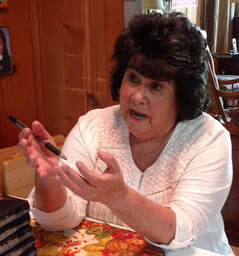
Rosa Martha Villarreal, a retired Adjunct Professor at Consumnes River College in Sacramento, California, is author of several novels important to American literature, including Doctor Magdalena, The Stillness of Love and Exile, and Chronicles of Air and Dreams, and a children's book, The Adventures of Wyglaf the Wyrm. Copyright Rosa Martha Villarreal, 2017.
CHICANO CONFIDENTIAL
To Ph.D. or not to Ph.D.?
“Should I Earn a Ph.D. in One of the Social and Behavioral Sciences?”
Some 40 plus years ago I earned a Ph.D. in sociology (with an emphasis in social psychology) at the University of California, San Diego. Now, I wonder why? Not for myself but for younger generations of Chicanos/as [herein: Chicanos] and others I’ve met and known across my years since earning the doctorate.
While preparing my notes for a keynote speech to be delivered at an annual alumni conference at a major university I was asked to reflect on the question, “What would I advise today’s students about whether or not to earn a doctorate?” The essay that follows is an offshoot of the keynote prepared for a general audience. Later, I was also asked to deliver a keynote at a Hispanic serving institution (HSI) and I decided to add a Latino twist to the question. I have to tell you, it goes without saying that I had many reflections about the Latino Ph.D. graduate experience while writing the keynote for the general audience. How could I not?
The Great Advice to Chicano Students Seeking a Ph.D. Degree
When a Chicano student asks me that question, I ask myself: “Does this student really have what it takes to earn a Ph.D. and go on to become a university professor or career researcher? Does this student have the stamina to survive the many hoops of fire that will form them into an intellectual?”
Over the years, my kneejerk response has grown more and more perplexing, both from practical and emotional perspectives. I want my response to be as honest as possible while at the same time taking into account personal life situations. I say to these students “Why do you ask?” and the most common response is most often “Because I have a passion for the subject matter.”
I know what they mean, as this has been my response to others for many years, still is. What I really mean to say (but never do) is “Why on earth in this day and age would you want to earn a Ph.D. in any other fields outside of STEM (science, technology, engineering and mathematics) where for the time being the jobs are plentiful and in high demand?”
One way to vet one’s ability for earning a Ph.D. is through their performance in a graduate school preparation program. It is an absolute must that young Chicanos majoring in the social and behavioral sciences thinking about attending graduate school, participate in a preparation and funding advisement program, one of the most comprehensive being the nationally recognized Ronald E. McNair, popularly known as the “McNair Scholars Program.” At the same time, students enroll into a unit-based senior level set of courses through the Undergraduate Research Opportunities Center (UROC) that addresses a variety of topics that will prepare them for graduate studies.
In so doing, the experience transforms students, provides insight into the life of a earning a Ph.D., and helps them develop a focused mindset. In short, once realized, the program places students at an advantage in preparing their applications to Ph.D. programs, Eligibility includes a strong academic record and that they be “either a first-generation and low-income college student or belong to a group traditionally underrepresented in higher education.”
A key part of the program is that students are matched with faculty mentors and as a result often publish in peer-reviewed journals prior to graduation. What Chicanos majoring in the social sciences need to know is that while this program has a reputation for primarily recruiting students from the hard sciences, social and behavioral science students are supported in the same fashion; the problem is that the program is not widely recognized in this way. In short, this is a wonderful opportunity for social science undergraduates.
Deep down inside my Self (in a social psychological sense), my truest response is directly related to my passion. I love ideas and I am keenly aware that the process of earning a Ph.D. causes a permanent cognitive shift in one’s paradigm for looking at everyday life; it literally transforms you and everything you interpret through an intellectual lens. Simply stated, due to the manner in which Chicanos experience the world, and as well as the way we socially construct our reality in everyday life, during the process of achieving the Ph.D., Chicanos develop a different consciousness, in this case an intellectual consciousness to be sure. During the transformation to becoming an intellectual your values and beliefs about most everything you know are transformed, held in abeyance in a new way, hence, you can’t help but also develop a Chicano consciousness. Franz Fanon recognized this duality and called it a “dual consciousness.”
My knowledge about the transformation of the Chicano consciousness as well as the process of earning a Ph.D. from the Chicano perspective comes from direct observations made while serving on dozens of hiring committees, not only in all the fields found in the social and behavioral sciences, but also in other fields (e.g., mathematics, life and natural sciences). And, in cases when there are not enough tenured faculty in a given academic area to assess faculty portfolios for hiring, retention, tenure and/or promotion I have been called to review faculty portfolios in my capacity as a full tenured professor.
I have also done the same as a university administrator. I would like to share the following general observations about the nature of university faculty hires in the social and behavioral sciences, and to some extent in the humanities. These statements are general, but at the same time represent what I continue to observe across academic fields, especially when it comes to providing advice to prospective Chicano Ph.D.s.
- Most positions require the Ph.D. in-hand prior to starting a new position. Don’t fake it until you make it or you will be labelled as such. And you must collaborate with a known editor to review your dissertation prior to submission; don’t take this point lightly as your dissertation will stay with you for your lifetime.
- There are an average of over 200 applications for each faculty position at major universities. Get used to steep odds; you must say to yourself that you will “never give up, never,” nunca darse por vencido, nunca, nunca digas nunca! Nunca te rindas!
- Place your machismo in a match box and be open to tips about how to improve your academic portfolio.
- You will be competing with applicants from other countries. You may be interested to know that there are a growing number of “Chicanos” applying from Japan, Germany, Mexico and Canada, no kidding, as they find the Chicano culture a fascinating topic for social inquiry.
- The applications that stand out are those with one-to-two year post-doc fellowships. Note: Post-docs provide opportunities to establish rapport with people that can help you find a faculty position.
- Publications are a must as the world you are entering is predicated on a “publish or perish” model. Publish your dissertation as a book. Publish both in and out of Latino Journals. Shy away from lesser journals until you have proved your abilities in known journals.
- A Ph.D. from a reputable institution
- Political acumen
- Mobility
These three social factors (general as they are) are realities that cannot be taken lightly, that is, if one wants to be gainfully employed, so let’s take a closer look at what they mean to Chicanos. A Ph.D. from a reputable institution is important as a recognized credential for a lot of reasons I am not prepared to discuss in this essay. Back in the day the majority of those Chicanos that were breaking the glass ceiling in academe came from just a handful of reputable universities like the University of Texas, Austin or from New Mexico Highlands University in Las Vegas (New Mexico) and the University of New Mexico, located in Albuquerque, New Mexico. Today, Chicanos are found earning doctorate degrees at any number of major universities.
Earning a Ph.D. from a reputable institution seems straight forward enough but the fact that more and more millennial Chicanos are earning degrees through one hundred percent online instruction such as the University of Phoenix and others causes search committees to rethink assumptions. For instance, statistically speaking, per capita, more Chicanos earn Ph.D.’s from Walden University (a fully accredited institution) than any other university in the U.S. I’ve also known and assisted students earning Ph.D.’s in online programs at the University of Phoenix and the Arizona State University and I would match what they learned against other reputable institutions. The problem is the lingering stigma against online education by traditionally minded universities of which there are many.
It wasn’t long ago that there was a great deal of stigma towards online degrees, and online Ph.D.’s were certainly not even considered possible. Today, when you earn a Ph.D. from say the Arizona State University’s online graduate degree program, it causes faculty search committees some pause about the quality of the program, plus, it is not self-evident that the individual in question was in an online Ph.D. program. Said differently, there is no distinguishable difference in the degree you receive and hang on the wall. Whereas in the recent past, many Chicanos felt they should earn doctorates from wherever possible, I return to the idea that at least in the foreseeable future, if you want to compete for a position at a major university and earn tenure, Chicanos should stick with traditional graduate programs at reputable universities.
The second social factor is the development of one’s political acumen. Just as the philosopher Aristotle encourages us to become political animals, he promotes the idea because politically aware people learn important bits of information on a daily basis that can increase one’s life chances. Simply stated, “Hang around the watering hole,” establish rapport with others, gain trust and create long-lasting relationships.
Historically, Chicanos don’t have this sort of political acumen outside of Chicano studies or ethnic studies programs, and so this has been an obstacle, but it’s importance should not be taken lightly. Academic departments are often in search of potential future heads/chairs of their departments, thus, presenting yourself as one who may fill this vision will work in your favor, Chicano or not. Few people want to take this position.
Mobility is a factor that doesn’t really strike new Ph.D.’s, until it does. One becomes so submersed in one’s studies, it’s difficult to get your head above water to see the practical realities. One of my advisors used to say, “You have to go where the gold is!” implying that if you want to increase your chances of landing a faculty position, you can do so by applying to positions in other states or countries. Bilingual and bicultural Ph.D.s are sought after and that is a good thing.
Think realistically about your job prospects. Many Ph.D. students hope to find a tenure-track position at a good college or research university after graduating (although others do pursue satisfying careers outside of academia). The reality is that academic positions are increasingly difficult to come by. Many Ph.D.s have to settle for temporary or non-tenure-track teaching positions, which can be just as demanding as full-time work but without the salary. Be prepared to follow jobs to colleges on the other side of the country or to adjust your career expectations.
With so many good Ph.D.s on the job market, many make altruistic moves by self-sacrificing their dreams of serving at a top 20 university and taking positions at lesser institutions. Many times Ph.D.s take teaching positions at community colleges and find that although their workload is greater than at a state college they are paid considerably more, and the reality is that it won’t be long before community colleges start requiring faculty to possess a Ph.D.
If you are like me, I made an altruistic career move (self-sacrificing), for the welfare of my family. I moved from a well-known top-20 Ph.D. granting university, to a lower-level (non-Ph.D. granting) university. I made this move in order to move my family to a highly desirable historic and culturally rich area with a university on the ocean and a high percentage of Latino students to include an agricultural area that stirred my sociological imagination for endless community-based projects that include service-learning opportunities.
If we view these social factors as measureable trends, we make other observations, like:
- In the next 5 to 6 years 38% of the California State University faculty and 32% of the faculty from the University of California, baby-boomers. will be retiring. This is also the trend across the nation. This means that many Chicano professors will be retiring.
- The number of faculty retiring under early retirement programs is growing.
- More Ph.D. programs are offering up to 5 years of full support because their endowments are experiencing high financial return rates.
- The normative time to earn the Ph.D. in the social and behavioral sciences and humanities is 6-7 years; 9 to 10 years is common.
- Post-doc programs are expanding, do research on a program that fits you.
- Many Ph.D. programs do not meet their “quota” in admitting Ph.D. candidates so take a second look at programs that may have initially turned you down and reconnect with them, go visit them face to face and make your case for admittance. Just do it!
- If we look in the pipeline there are far fewer Latino males seeking Ph.D. s then females, Stanford psychologist Phil Zimbardo (The Prison Study) refers to this phenomenon as the “demise of guys” stating “Guys simply don’t see the pay-off.” This is certainly the case for male Chicanos.
- A growing number of Chicano professors are moving into administration and out of the professoriate in turn making room for new faculty lines. Think before you go for the big bucks as you were not trained to become an administrator.
- Keep an eye-out for the trends in higher education, Chicanos are not as in vogue as they were just a decade ago.
Trends or not, the Ph.D. is not for everyone due to a myriad of factors, some of which I have enumerated in this essay. Traditionally, the Ph.D. degree was viewed and valued as high level training in performing research in one’s chosen scholarly field. Said differently, going into research as an aspiration for some may not be realistic, but there are programs that offer alternative kinds of Ph.D. opportunities. Of course if a student sees his or herself wishing to be a college or university professor, and has the skill set and capabilities to actually become one, than a Ph.D. is typically a pre-requisite at least for the foreseeable future. Bottom line – it depends.
And, before addressing the question “Should I Earn a Ph.D.?” any further, let me offer a philosophical and highly important perspective, depending on the age and interests of the student. I suggest that students take off a year after graduation and perform some self-analysis while being employed and reflect on Socratic like questions: Who am I, really? Why am I here? How then should I live?
A Ph.D. is perhaps the most important degree in the world. Ph.D. level research skills will help to improve your abilities to understand and solve problems, increase your confidence, make yourself a better communicator and gain skills that may lead to a better job, even in many fields apart from academics; plus, you learn to teach yourself (most anything) for the rest of your life.
Working on a Ph.D. is an indication that you are taking ownership of your professional life and at the same time taking responsibility for the development of your academic career and life. It is more important for you than for the institution you work for or go to obtain the degree. The Ph.D. institution may not be the purpose of even the passion of your life; it is merely a vehicle in which we travel on one part of our life’s journey.
What is most important, as Abraham Maslow has pointed out, is self-fulfillment. That is the most worthy goal of all. Money may be tight while you're studying, but this is one area where a Ph.D. really is worth the investment, especially in fields such as law, pharmaceutical sciences, biomedical sciences, and finance. Getting your doctorate will make you more likely to earn a higher salary over someone with only a master's degree.
- You’ll have unique career options open to you that you won’t get with just a Master’s and you can lead a non-profit that serves your community.
- You’ll have the self-confidence that comes with knowing you stuck with your degree, instead of quitting.
- Your writing skills will improve tremendously.
- You’ll have better interpersonal skills.
- Intellectual curiosity.
- It is a myth that a Ph.D. degree only prepares you to succeed in academia. Since a doctoral program helps you develop a field specialty, it is not hard to imagine people who use their Ph.D. training to sharpen their skills in order to work in industry.
Why I shouldn't enter a Ph.D. program?
- No true passion
- “I just want to be called ‘doctor’”
- No rapport with an academic advisor
- Too much of a financial burden
- Too much time and energy
- Unforeseen Consequences
- “I thought I had a passion for this stuff, but I don’t.”
- “I didn’t know it would be this much work.”
- “I can’t find a supportive advisor.”
- “My spouse can’t take it any longer.”
- There is no real “transfer” between universities, like moving from one university to another and holding the same academic standing or credit earned.
- What do I do if I never earn tenure?
What is your motive for getting a Ph.D.?
Examine your true motivation for wanting to earn a Ph.D., and how the degree makes sense or not within your larger plan. Despite the obstacles, people stay in doctorate programs because they enjoy learning for learning's sake. They relish the opportunity to tackle intellectual problems and explore new areas of knowledge. For some there is the added appeal of taking time out from the traditional job market as you pursue what you love. But if it's your ambition to become a professor, you should be aware that the Ph.D. track is no guarantee of a life in academia.
Can you live frugally?
Getting a doctorate is intellectually rewarding. Unfortunately, it doesn't tend to be financially rewarding, at least not in the short term. Most Ph.D. students live on their earnings from teaching and research assistantships or other low-paying employment. So, your starving student days may not be behind you.
Are you ready for the workload?
Graduate courses are far more rigorous than those you took as an undergrad, and first-year Ph.D. students usually take around three classes. Many graduate students also serve as teaching assistants (TAs) and must learn how to juggle their needs along with their students’. Chicano students who serve as TAs soon find out that students of color will seek them out as mentors, role-models thus adding to their workload – this phenomenon will not change through the course of one’s career. And, of course, in the final years of the Ph.D. program, you'll mainly focus on writing the dissertation and preparing for oral exams.
How do you handle pressure?
Each year, some Ph.D. candidates do not meet the requirements of their graduate programs and are asked to leave. Others choose to leave because they are burnt-out, or their interests have changed. Some students who don't complete the Ph.D. leave with a master's degree; others leave with no degree at all. You should be prepared for these scenarios by making a back-up plan.
Successful Ph.D. students thrive in a highly intellectual environment, are willing to work very hard with only a possible payoff, love their field of study, and don't mind forgoing impressive paychecks. If this sounds like you, forge ahead!
The Art and Science and Benefits of Grant Writing
If you really want to set yourself apart and if you want to generate data to write and publish about, write a grant. There is nothing like writing a grant and receiving funding for your ideas. One of the most intriguing thing to me is that most people will never write a grant, nor will they ever have the experience of being critically examined for ideas they propose. Go for it. Just like everything else, it takes a little practice. Start by reading the first 30 pages of Writing Grants for Dummies; it is a good and practical guide. It’s like my mama always says, “What are you asking for now, Sonny Boy? You should always be asking for something!”
I always had innovative projects to propose to be sure, so I often sought out and established rapport with foundation representatives on designing fundable projects. I did the same with foundation representatives in private corporations often linking them to others performing public service. I caused wonderful interdisciplinary marriages and always brought attention to those involved. Así, pues, nunca debemos abandonar la esperanza aunque parece imposible de mantenerla.
Diversify Your Skill Set and Bench Work: Remain Interesting to Others as Well as to Your Self
I have a colleague who spent 38 years as an English professor at a major university; 25 years ago, he earned a Master’s degree in marriage and family counseling (MFC) and simultaneously built a psychotherapy practice. Interestingly to note is that he has a Ph.D. in English and a MFC degree in counseling and the title on his counseling practice reads, “Dr.” He retired as an English professor but has since kept his counseling practice. Interesting to note is that his practice is located directly across the street from a major university and ninety percent of his clients are young tenure-track professors with tremendous amounts of anxiety – now that’s interesting!
Final Points
- Getting a Ph.D. isn’t enough to get you an industry job.
- A Ph.D. means very little unless the individual has the right mindset.
- Collaborate with authors of your letters of recommendation so that they describe you as the best thing since sliced bread and not sell you out.
- View your CV as a presentation of Self (in a social psychological sense).
- You may end up with an academic advisor who treats you poorly; try to turn that around. If not, deal with it, earn your Ph.D., and move on.
- Establish rapport with your advisor as well as other scholars.
- Cast a wide net – work at expanding your social network, la red.
- Devise methods (like publishing or co-authoring articles) to deal with the publish or perish fear mongering.
- No matter how out of line they may appear, propose ideas, write grants and collaborate with others on your ideas.
- Work hard, work very hard. Get up early every day to get to your bench work.
- Remain aware that the truth about discrimination is that it is alive in American society. Latinos are discriminated against for a variety of reasons ranging from their accent, skin color (phenotypic discrimination) and/or political views (especially activist views). In this day and age, it is not recommended that one refer to themselves as “Chicano/a” as it is viewed as politically incorrect, even old school.
- Diversify your skill sets (earn a certificate in an outside field). For example, if you earn a Ph.D. in sociology, go out and earn a certificate in Enterprise Architecture or Systems Engineering as Silicon Valley corporations are in need of social scientists who can “speak” engineering.
- Earn a Ph.D. from a reputable institution. Consider studying back East or attending an Ivy League university.
- Be a political animal.
- Develop coping skills for navigating with a Ph.D. in a peculiar and curious world. The only way to cope with and/or transition out of this system is head-on, question it intelligently, take risks, and adopt a strong mental state
- Be mobile. As a Chicano, consider moving out of Aztlan (out of your comfort zone) as you can always return, but know, when you do, people will see you differently, and that’s a good thing.
- Go where the gold is! Id donde está el oro!

A Winding Road to the Doorstep
of Dr. Ernesto Galarza, and to Joining
the Fight for Social Justice

This emotional mixture was my characteristic approach to interacting with new surroundings, situations, or people. However, since earning my BA in August 1966 from la Universidad de las Américas in Mexico City, with an interdisciplinary major in Latin American Studies and Social Sciences, my life had been increasingly unpredictable in terms of repeated changes in geography and role.
Rather than the fairly predictable smooth and straight path I had lived as a university student in the highly cosmopolitan context that was Mexico City, my path now resembled that of a pinball. I felt myself being propelled at different speeds, spinning, ricocheting continually against different and similar positions on a seemingly inclined surface, moving in indeterminate directions toward uncertain destinations. Controlling the speed, force, direction and goal of the pinball that was now my life did not seem to be a viable option.
I had moved to thirteen locations within Mexico, the United States, and Germany from the time I graduated from la universidad to this particular morning, a span of 6 years. Concomitantly, I had changed learning−or earning−roles 9 times, as well—and was being interviewed for my 10th change. In Mexico, I had gone from graduate student, private school teacher at various schools and a private language institute, to positions of regional manager and, later, director of sales and promotions within the private sector. In the US, as a draftee, soldado raso, beginning in May 1969, I was trained or stationed in three US Army locations and at European Headquarters, Office of the Engineer, in Heidelberg, Germany.
Back in the USA, in early 1972, I was briefly employed as a personnel specialist at San José City Hall and, in a somewhat longer capacity as a relocation specialist at the San José Redevelopment Agency. Two extended trips to Los Gatos, California, and Fairbanks, Alaska, were sandwiched in between Mexico and the US Army, and a part-time job happily selling clothes in the Men’s Department at Macy’s before landing full-time jobs in San José, was also part of the role-shifting scenario.
In a nutshell, the geographical and role switches were deep, numerous, and unpredictable. As is probably self-evident, travel was not conducted for the pleasure of visiting a locale, as in each case there were economic or military-related motives, including being discharged a few months early from the US Army to return to Mexico City as a graduate student.
How had I even arrived to this Willow Glen address, to speak with a person whom I had yet to meet in person and had only briefly chatted with from a pay phone about a nebulous undertaking related to an educational project not yet on the books? My physical return to the States is easy enough to understand. I had left Mexico City, reluctantly and embarrassingly in debt to my alma mater and to my parents due to a very simple but devastatingly damaging occurrence within the Admissions Office at the University’s branch site of its MBA program. To take advantage of the GI Bill benefits related to tuition coverage and living stipend, I had dutifully completed my part of the US Veterans Administration forms and submitted them to the Admissions office so the forms could be further completed, and then signed, sealed and delivered by mail to the VA.
I kept waiting for my checks to arrive and for my tuition to be paid, but instead, I began to receive notices from the university that my account was past due and emotionally-charged, escalating inquiries from my parents as to what I was actually doing in Mexico City with the funds they had sent me and that I had promised to repay. This economically disconcerting circumstance went on for two academic quarters. I finally reached the point where my faith suffered a total lapse that the checks would be in the mail, and in an effort to track the postal trail of the documents, I decided to ask the staff at the Admissions Office when they had actually mailed the documents.
I will never forget how they looked at each other and then at my bemused visage as if I were daft. They told me, with a hint of amusement-cum-disdain in their voices and facial expressions, that they hadn’t had the slightest idea as to what the documents were for and had thrown them directly in the trash! Thus, simply stated, I was pushed out of “el DF”—as everyone there referred to it in Spanish at that time.
Although the nostalgic tug of my summer 1967 experiences was present, perhaps more important was the fact that in late 1971 Arthur—known in our immediate and extended family as Fonsin—was still working at IBM in San José, California, and my younger brother George was completing the last year of his undergraduate degree at the University of Santa Clara, from where Arthur had earned his undergraduate and two graduate degrees, as well as a “lifetime” teaching credential that remained and remains unused to this day. Arthur was not in love with the thought of teaching after his student-teaching experience, but the certificate hangs on his wall, hiding a nasty stain that’s lying there, à la 10cc.
I arrived at the San Francisco International Airport in the same way I had left Mexico City—penniless and jobless, and, having relinquished my university studies, I now could not claim the empathetic social designation of “student” that would at least give pause to others before passing judgment on my ruinous circumstance. I was not a poster child for promoting the benefits that would accrue to one by having earned an undergraduate degree or for giving witness to having received well-earned educational benefits for having served one’s country and getting a leg up on one’s future.
I did have my pride and my vision, as well as six MBA courses successfully completed under my belt, but as we all know, none of that puts food on the table or money in the bank. Following my brother Art’s advice, I sought the assistance of a private employment service, where the agent modified my actual résumé into a fantastical smorgasbord of talents and achievements that produced yet another disdainful scoff by the sole interviewer when I pointed out the inaccuracies of the exaggerated claims.
Still, it was a company that sold some sort of technical equipment—let’s say, copiers—and they scheduled me for a second interview. I thought about it and on the day I was to be interviewed, I called them and told them I was not interested in further pursuing the job opportunity. I reminded myself: “I did not come to the United States to sell copiers.”
My professional reasons—the socio-economic pull factors—for returning to the United States were more complex and deep—somewhat akin to Bonfil Batalla’s México Profundo, my reasons were profoundly, culturally existential and persistent, my own Tejas Profundo. I had always been naturally oriented toward “fighting the good fight.” Having been born in Texas, as I was, with a Spanish last name and demonstrating competency in both English and Spanish made one instantly foreign, and open to ridicule and verbal and physical abuse.
Even before I was in kindergarten, I saw older kids gang up on my brother, who was nearly 3 years older than I; and by the time I was in early elementary school, I experienced the sting of being called ethnic slurs. We were a cultured, upwardly-mobile, economically well-off family, but my father—who probably had had similar experiences growing up and who had been a high school athlete and Marine during WWII—told me to defend myself against these types of people and injustices. So, I learned to fight and would physically confront those who would insult or otherwise taunt me—and there were numerous of these physical altercations before leaving Texas for Spain.
On the one hand, in el DF, I could read and strongly empathize with the works, say, of James Baldwin (The Fire Next Time) and Elridge Cleaver (Soul on Ice); the inspiring genius and transformational oratorical and activist power of Martin Luther King, Jr.; the singular, strong, unique voice and actions of Malcolm X; and the majesty and momentousness of Tommie Smith’s and John Carlos’ Black Power salute (as it was seen to be then) as both medalists stood on the Olympic podium during the Star-Spangled Banner on October 16, 1968, in Mexico City—to the point of wishing to be an active part of the movement in the US, as I felt like an insider.
Also, I had an outsider’s empathy and understanding of the driving forces and values associated with the student and earlier unionists’ protests in Mexico City for democratic action and fairness in labor wages, benefits and conditions—but at the same time, would never dare to become an activist there as there was no doubt that life was cheap, and danger—certain death— was imminent. This certainty was evident to me years before the massacre of Tlaltelolco and was not only “floating” in the air of el DF, but palpable, as well.
The sad irony for me and for my peers was that the pachuco, the pocho, and the chicano were collapsed into the same negative stereotype based on the status quo frameworks and perceptions created, published and disseminated by popular, even acclaimed, cultural spokespersons and widely accepted by the educated and professional class. Thus, in direct contradistinction to my empathy and desire to be an active part of the black civil rights movement, I arrived to the Bay Area having a misguided disdain for the group identified as Chicano that I had read about in the Mexico City newspapers and that had been presented as trouble-makers, who were somehow less than Mexican in language, dress and behavior, and whose showy, tasteless actions were an affront and embarrassment to Mexico.
Nevertheless I knew that my professional aim was in the realm of social change and not sales, and thus I began in late 1971 to seek employment in that arena and found myself interviewing for jobs where my bilingualism was an advantage. I remember vividly, and will forever, upon my arrival in late 1971, purchasing and reading a number of edited paperback volumes in the social sciences whose chapters were authored in the main, but not solely, by black or latino authors, in order to achieve a better grasp of the social context within which I wished to work. I still thought that I was merely refining my existing knowledge base and perspectives, and that my attitudes were in no need of refinement; what I was really doing, however, was preparing myself unwittingly to experience a transformation on all three counts.
At the end of one particular chapter on Mexican Americans/Chicanos, there was a survey that one could take and, through adding up the points achieved associated with each item, derive a total score, which could then be related to a range of categories, where the last category, signifying that the test-taker had no knowledge whatsoever about the context or people within it, was Pendejo. (Note: The term pendejo has many meanings throughout Latin America, mostly pejorative regardless of it having a standard, non-vulgar meaning relating to pubic hair. But in Mexico, its meaning is extremely pejorative, insulting and to be used with caution—although its use is ubiquitous. That’s a socio-cultural contradiction one must deal with.)
I assiduously completed the survey, patiently tallied up my points, and calmly searched for the appropriate category, only to be shocked and genuinely befuddled that my score had placed me in the Pendejo category. It was a moment of epiphany. I respected the survey design sufficiently to at that very moment question the value of my self-assessment of my knowledge base, perceptions and attitudes as they applied to the Mexican American/Chicano context and the issues the community was confronting, and, especially, what I thought I knew of its members and the diverse manifestations of their cultural expression.
Privately, I assumed the questionable sobriquet of pendejo as I realized that it served as the base line from which I could only go up in my development at all levels. From that point on, my readings were not filtered through my preconceived notions, attitudes or interpretations, which enabled me to absorb facts, information, frameworks, analyses and interpretations upon which I could reflect and begin to re-build a new framework that would serve me operationally within the context in which I wished to work, and that would refine my development as a human being.
And that was my state of being as I approached the front door of Dr. Galarza’s modest house in San José, California, perhaps not dressed to kill, but certainly to fight.
He spoke of a project that involved collecting artifacts that would need a curator to catalogue them for use in developing educational materials for teachers and students in Spanish. I heard the word “curator” and imagined at that moment being in a section of a library where the light coming in through the windows highlighted the dust particles floating in the air and falling on scores of card catalogue cabinets, and I could see someone, perhaps myself, in a dark, rumpled suit, wearing frameless glasses, and even having dandruff on the shoulders of the suitcoat.
The word “curator” for some reason conjured up that mental image and had stopped me in my tracks such that I lost for a moment the thread of our conversation. I honestly couldn’t see myself in such a routine, clerk-type role and thought it too boring for the dynamic professional expectations I had envisioned. I subtly pulled myself together, refocused my eyes on his, and began to listen attentively again.
But I felt that the interview was coming to its natural end, and suddenly Dr. Galarza asked me what was to be the final question: “Roberto, do you like to fight?” Without hesitation, and with a clear, confident, even-toned voice, I replied in all honesty: “It’s what I do best.” He threw back his head and let out a roaring laugh.
I did not know it at the time, but I had landed the position as Coordinator of the Bilingual-Bicultural Studio/Laboratory. I was to be part of Dr. Galarza’s team of consultants working within the San Jose Unified School District, and my role as Coordinator would be far from that of the curator I had imagined. Specifically, the team would develop and provide (a) learning materials and activities in Spanish for Spanish-dominant children in grades K through 3, reflecting the children’s real-life contexts, and their cultural and historical contexts, and (b) long-term, professional development for their teachers and teaching assistants.
I experienced yet another epiphany upon joining the team: the realization that from this point on, I would be fighting the good fight daily together with Dr. Galarza−my mentor, my coach, my teacher−in the service of social justice. I felt humbled. I felt rewarded. I felt I arrived home.
Later, of course, in working with Dr. Galarza on a daily basis, I learned more about him—his birth in 1905 in Nayarit, Mexico and immigration to the US with his mother and relatives when he was around 6 years old; his early experience as a farm laborer; his sterling undergraduate academic achievement that earned him membership in the Phi Beta Kappa Honors organization, and later graduate degrees at Stanford and Columbia; his long, relentless and substantive careers in the Pan American Union and as a labor organizer and leader in the National Farm Labor Union and secretary of the National Agricultural Workers Union; his life-long dedication to social change and justice as an activist-scholar, whose commitment to and application of rigorous social science research methods led to publications that were respected and relevant; his extraordinary command of and verbal and written eloquence in English and Spanish; his untiring strength, vision and ability to follow through on projects to help communities and groups at the mercy of government agencies or private enterprises, organize, gain power and visibility, and fight for their rights; his never-ending passion for education as a context and experience for students to learn through meaningful curricula and activities that reflect their immediate social and environmental surroundings and cultural heritage.
Dr. Galarza well understood that the role of language was paramount in meaningful communicative interaction with students. I remember with delight the night a group of us from the Bilingual-Bicultural Studio/Laboratory team had been invited to his house on Franquette Avenue to see and listen to a taped broadcast of an interview with him on bilingual education. Dr. Galarza’s clarion call for quality education is forever etched in my mind, heart and soul: “Bilingual Education cannot be boring the students to death in two languages!”
Dr. Galarza was embraced by many groups—even by those who tried to guide and control his endeavors within the Studio Laboratory—but I never heard him attach a label to his identity. He was an individual with a social conscious, and a life-long belief in the principles of social justice and universal human rights, in my estimation, who had no love for working within or being associated with postsecondary academic institutions. In one of his published essays, I recall reading that after a short while teaching in any university setting, he felt as if he were among ghosts in its hallways. I drove him once to a venue in San José where he was to address an audience of Chicano or Mexican American academics, and before I dropped him off he said “But they will be surprised because I am not going to tell them what they expect to hear.”
Dr. Galarza was a polymath of grand, integrative proportions: a thinker, visionary, activist, scholar, poet, researcher, and gardener—and those are only the roles with which I had first-hand knowledge. He was profound, original and essentially unknowable, for he purposely did not leave a self-recorded trail other than Barrio Boy.*
Dr. Galarza found memories to be unreliable accounts of the past, even or especially one’s own. He chose instead to settle firmly within the context of rigorous scholarship to document, analyze, interpret and publish research that related to the greater issues outside the self that plagued communities and groups, and to work on a small, even personal, scale to address the issues indefatigably and with full knowledge of the challenge before him. Dr. Galarza operated, in my mind, as a chess grandmaster, seeing the field and its players before him, and understanding from a challenger’s first move how the rest of the game will be played out, including all its alternative moves and countermoves.
I sensed this in 1974, when it became evident to me that the Studio Laboratory would not gain the ongoing support of the San Jose Unified School District and instead support a district-friendly bilingual education version headed by willing players with Spanish surnames. I also recognized that Dr. Galarza saw this inevitable ending and would see it through to the end, which meant the demise of the Studio Laboratory.
I felt I was a pawn in this particular game and that my actions, and those of my colleagues, would not lead to further development—it appeared to be a planned fade-out and extinguishing to serve the purpose of moving to the next stage in Dr. Galarza’s continuing fight for relevant social change in the context of education for Spanish-dominant pre-school and early elementary students. I drove over to his house, sat in an overstuffed chair and shared my thoughts, after which he asked me what I planned to do with my newfound analysis. I responded that I felt that I would have to leave my position as coordinator if that were indeed the scenario being followed.
Dr. Galarza, without hesitation, looked directly at me from his standing position and merely said: “We all have to do what we feel is right.” I left the Studio Laboratory in October 1974 to work as supervisor of the grant development unit at Economic and Social Opportunities, a community action agency of Santa Clara County, and nine months later had completed my master’s in Mexican American Graduate Studies, and settled in at Stanford to pursue my PhD in Curriculum and Teacher Education, with a concentration in Bilingual (Bidialectal)/Bicultural Education.
Dr. Galarza submitted a letter of recommendation advocating for my acceptance into the university and also accepted my invitation later to speak in the School of Education to students and faculty regarding the by-then-defunct Studio Laboratory, at which point he stated to the audience that “Roberto and I were colleagues there.” It made me feel humble and proud, and I am forever grateful to have met, worked with, learned from, and fought the good fight alongside el doctor Galarza.

*Barrio Boy The Story Of A Boy's Acculturation, by Galarza, Ernesto, University of Notre Dame Press, Notre Dame, IN and London, 1971.
Chicano Confidential
On Understanding the Situatedness
of Everyday Life While Facing
a New Year (2019)
Recently, someone turned to me and said, “You’ve got a lot going on in your life right now, don’t you?” and in a micro-second of reflection I thought, “Not any more than normal,” and then the reality of my situatedness of daily life sunk in. “Yes,” I thought, “I guess I do have a lot going on.” By this coming June, I will have 8 grandchildren (including a set of twins), as everyone is pregnant (we currently have 4 male grandchildren).
I am currently searching for solutions to place my father in long-term rehab care in San Diego and my mother’s dementia is progressing so rapidly that I can hand her something and she will place it immediately in the proverbial Black Hole. I am leading a major policy shift at my university, while acting as lead academic planner for our University’s 25th anniversary, and I have made arrangements to take our entire family to Maui for the greater part of the summer, oy vey!
I’ve even reached a point where I conducted the preliminary math demonstrating that I may be retiring as early as this summer. These events were for the most part not unexpected as I am an old scuba diver and I always “plan my dive and dive my plan,” but I have to confess: no matter how prepared one is, Father Time has a way of sneaking up on you and tapping you on the shoulder. It seems that time, numbers and my personal philosophy make up the mainstay of how I construct my reality in daily life at least for the onset of this coming year.
I didn’t think my goings-on were observable, nobody ever really does, that is, until somebody does make the observation, “You really have a lot going on right now, don’t you?” We all believe that most people don’t really care about who we are or what we stand for, not really, for emotional and practical purposes.
Daily life is way too complex for one to keep up with the energy it takes to truly care for others. I mean, doesn’t everybody always have a lot going on? It’s simply too much to keep track of what people are doing, thinking or facing. Why should my situatedness stand out, why now? Conversely, this is why I find most everyone quite interesting, everyone has a story, and every story is unique and in turn interesting. Said differently, everything may in fact be observable but what is interesting for the day or even for the moment is a topic of social inquiry all on its own; it is phenomenological in this way.
It’s as though my Self (in a social psychological sense) is evolving with every social interaction; how can it be perceived any other way? While I am keenly aware of such evolution, I’ve never felt the evolution of Self the way I do now. What better way to measure one’s situatedness than to compare your time (like, your time left on this earth) against the backdrop of the endless situations that come up in everyday life? Everything is quantifiable such as the number of strokes of genius, impulses, how many grandchildren, even the number of heartbeats in one’s life, you can count them all.
Again, the statement directed to me can be directed to you: “You’ve got a lot going on in your life right now, don’t you?” At first, it can only be examined existentially because it evokes feelings, often deep feelings depending on the situation at hand. I will say there are markers along the way, some outright signs along the way you might say that are not only directive, but, all at once full of symbolic meanings. Much like the radical empiricist William James, my tendencies are to ground what I say theoretically in observable examples, including those found in my own life.
At the onset of this past summer, I observed two massive (I mean massive) chunks of glacier each the size of five football fields slip into Glacier Bay, and this occurred within 12 minutes of each other. I video-taped the second slide, but haven’t mustered up the courage to view it again as it really rocked my world. Having been taken by surprise, I was all at once mortified to the core of my being, my brute being that is, I honestly still can’t seem to shake the feeling.
I wasn’t fearful of a tidal wave effect or anything of that sort, frankly I didn’t know what it was I was feeling. It wasn’t until weeks later that I came to the realization that I was in shock and this triggered my sensibilities beyond my control all at once, changing my human condition, forever. Likened to Ludwig Wittgenstein’s “white sheet flashes” to massive sheets of sliding ice were simply too much to handle all at once.
How else can I say it except that “It scared the hell out of me!” I wasn’t aware of the full impact it had on my psyche until much later. It was as though I was completely caught off guard by a sensation so overwhelming my sensibilities were shut down by natural defense mechanisms and as a result, I switched to autopilot, not allowing myself to feel the sensations that were so overwhelming. It was one of the greatest contradictions of my life.
While I have always enjoyed living and dwelling in contradictions, suspended existentially so, enjoying being at the helm of a sailboat with a broken rudder in a full gale storm, this was a test of the tempest, “nor'easter” you might say. I imagined the sky ripped open by a giant Russian god-like philosopher, yelling down to all of humanity:
“You all have ruined the earth; look at her now look, at Gaia (Mother Earth). The massive sheets of ice slipping into Glacier Bay are her tears crying to let her loose, to let her heal herself the way only she can do. You (humanity) need to step aside and let nature (Mother Earth) take over and heal herself, she has taken care of herself for billions of years, well before humans arrived, for Christ’s sake step aside!”
This was it! This was the penultimate contradiction of my life and it caught me off guard, I’ve been sensing this ever since witnessing Gaia cry; it was like Mary, Mother of God, crying for her son and for our sins.
Last month, in my capacity as the keynote speaker and a Distinguished Alum at UC San Diego’s 50th year celebration of its graduate division, I presented myself as a well-trained scientist that had tried on various rationales that might help me mask the realities we are facing in American society today – one is global warming. I argued that during current times it is quite difficult to perform critical objective scientific analysis because the average person on the street does not understand science and their thoughts are based on what they gather from quip-like political remarks they hear on television, on the radio or read in pop-ups that are not scientifically based.
The physical condition of Mother Earth is in the back of my mind, even more so than is the fate of humanity, she needs real help beyond what I have to offer and I have offered more valiant efforts than most as evidenced by my work in convening world-class scientists in Big Sur. At the core of my being, I’m keenly aware that everyone tacitly knows but doesn’t want to say out loud the unspeakable truth:
“We [humanity] have systematically ruined the earth due to greed and to self-preservation beyond the type designed for us by nature. We somehow got off track and at the cost of forsaking others or even contributing to the social good have designed distractions into our realities so great that we consume much more than we can play out in useful ways in one lifetime. This behavior has driven humanity far beyond the tipping point for any possibility of ecological reconstruction. There is no going back; the massive chunks of ice falling by the minute in Glacier Bay don’t suddenly re-attach themselves, they don’t grow anew like frozen crystals, they simply melt away like islands of meaning that only few can understand, because people don’t take the time or have the time to save them or Mother Earth.”
People remain distracted seeking refuge in the Google-god thinking they have an understanding of every situation, every problem and every subject matter. From a scientific perspective, it’s simply annoying to constantly hear interpretations of a Google sort from those who have little understanding of deep levels of predication. “Just Google it,” they say, with no understanding that the rhythm of their personal algorithm shines only a subjective light that cannot (will not) allow for objective truths.
The philosopher Aristotle believed that “seeing is believing” although he didn’t live in a world of social media in the same manner as we do today. He did not take into account that for political reasons people would begin purposefully altering video and pictures for political reasons. This was not part of his awareness. Said differently, whether you believe in global warming or not, whether you practice science or fake science or fake news, I know what I saw and experienced in watching Gaia cry sheets of ice.
This truth cannot be denied, I heard it, I saw it, I even smelt it. It’s like listening to your aged mother who is hard of hearing trying to order her prescriptions over the phone: “Can you please speak up,” she says. “I can’t hear you, please speak up.” It’s a truth you can’t deny, it’s not “fake,” just as in the gym, the barbells don’t lie—they are in fact heavy. Sir Issac Newton observed a basic truth “What goes up must come down.” Watch video replays of when you were young as they capture a picturesque younger Self about the way things once were and sometimes these are difficult to watch because they capture a truism: “You are [today] what you once were [yesteryear]. The unforgettable sound of cracking ice is so memorable; it is in fact plaguing to my senses, I will never forget the sound and yet this phenomenon becomes the mainstay marker for the rest of my life, placing me on a hermeneutic spiral to enjoy in a rather disturbing way.
For me the sound or old reflections are evocative, poignant even melancholy; they linger and contribute to the way I construct my reality in daily life – how else can I say it, except to say it the way it feels, this becomes my situatedness, this becomes the foundational springboard for the evolution of my Self (in a social psychological sense).
So in this way, yes, I am just like you, I do have a lot going on in my life, for many it appears I am preoccupied with the end of the end of things: objects, relationships, even perspectives or paradigms for looking at scientific discoveries. Things change, science changes the way we view realities through scientific discovery not through “fake news” or “fake truths.”
It’s the eve of yet another year to come and a year gone by even at a more precipitous pace than the previous one. Yes, I sound like my parents and uncles who constantly remind me, “Life is short.” Yet I remain baffled at what is inevitably to come, this year, unknown yet seemingly felt in my soul. What new vulgar circumstances (even rollicking vulgarity or playful exuberance) will give birth to my story writing for example?
As I grow older, words, it seems, sit on ideas with uncanny ease and make more stories seem inevitable, I never know what is coming out of my imagination next. I do however remain convinced that as Einstein puts it, “Imagination is more important than knowledge,” which, by the way, is the trick for scoring at the highest levels of IQ tests and college entrance exams. “Teach your children well.” Now headed for quasi-retirement, the fictional stories I started writing in the form of “science friction” afford me a separate life, a “separate reality” as my old friend Carlos Castaneda used to put it, and new relations.
I’m aware of my lack of formal training in creative writing, yet it actually becomes the very reason whenever I go to contemplate a “creative” work for pleasure. I’m fine with the fact that my stories will surely not be on the Best Seller’s List nor a Pulitzer Prize winner for these authors always lack soul and only write for the prize. They are in fact creatively boring, what one might typify as “tragicomic solipsism.” Frankly, I’m always fascinated at how boring prize-winning authors can be in real-life. Even so, there is almost no one I can call for honest advice, “Your stories are great” they say, with no proof or affirmation. It’s not difficult to realize how I cause a new deviance disavowal because I know they didn’t read my writings, yet feel the need to tell me they did, hey, no problem.
I firmly believe people trained in creative writing practice linguistic calisthenics; a lot of words, without soul. I understand how the book writing world works, people simply prefer living the illusion, and again, perception becomes everything; therein lies the organic disconnect. In this spirit, I have even come to believe in the “fish stories” I have to some extent imagined and I see this as a good thing inasmuch as I have continued mindful activities and exercises that contribute to the evolution of my prodigious memory that allows me to recite my finished stories verbatim. I became aware of this ability many years ago when seated in a hot-tub next to a distant relative at a family reunion held at the Rosarito Beach Hotel. I told her the story of how I was once attacked by a wild-boar on Catalina Island and she did not believe me until the next day when we were joined by her husband whom I shared the story with as well and she observed, “Sonny Boy (my nickname), I didn’t believe you yesterday but I do believe you today because you told the story in the same way word-for-word.”
It is the case that I practice the art and science of writing like I talk and talking like I write, plus I want to defer atrophy of my brain as long as possible. Most people don’t see the insight my stories can bring as they say, “his silly little stories;” they are all psychoanalytic and often viewed as “irritatingly clever.” I think more about the future and the future I am already starting to miss. I remain eager to see how my personal buoyancy plays out in a hopefully different economic and emotional climate as I reach my later years. The way I see it, psychologically I should be happy, financially I should be set. Don’t forget, a scuba diver “plans his dive and dives his plan,” so I have a plan.
But will an unexpected “four-alarm fire” surprise me, will I find it exhilarating (like being shot at), will I have the capacity to turn a nightmare into an insidious experience, at the very least a cheap thrill. If anything, my trained anticipation of the unexpected has always turned to a mission of good times. I expect to look back at any “urgency” and think “courage, after all, wants to laugh.” You can’t take life too seriously as it wasn’t meant to be that way, yet so many of us cannot see it any other way as evidenced by people who take themselves too seriously.
It is for this reason I continue to amuse myself to death. I’m having a hell of a good time, by design. Life is for me an intellectual game. The allusion and/or insinuation endorses my serious refusal to be serious. I see every idea as inescapable from the link to the evolution of SELF, not vain, not self-defeating, not even a linguistic construct, but artistic. It is through this paradigm for looking at storytelling that I simply want to show those who indulge in my stories how to live a fulfilled and meaningful life and to become less alone inside in a world with inescapable ways of contributing to alienation, Karl Marx’s greatest fear.
Said differently, through my stories I want to help people feel life, and remain more than arm’s distance from being-bored-of-being-bored. Hence, if you are going to mistake your wife for something mistake her for a hat, a nice black hat (a la Oliver Sacks) and enjoy it, don’t get freaked out by the experience. It’s like taking LSD. Timothy Leary use to say, “Never have a bad trip, learn from it, enjoy it as you will never forget what you learned.” What I believe is that there can be optimism within one’s personal despair, elation of a curious sort in its anomie. More than ever I feel like a paradoxical character with an outsized passion, repression and expression: twin causes of complication, harmony and disharmony with significant others who think:
“He is such a nice person, a good father and great grandfather, yet there is something in him that keeps him from being completely decent.”
I have to ask, “Do people not understand my aesthetic?” Years ago I wrote a book on fear and it wasn’t until now that I came to the realization that I write stories because I am afraid that the last thing I will write will be the last thing that I write. This is not paranoia as that would be fear of the unreal; my fear is based not only on real fear as evidenced by the stories I keep producing, but also by the body of original scientific knowledge I have contributed over time. I find in life amusing peculiarities that trigger epiphanies, continually!
Maybe deep down inside there is the possibility that telling a story could lead to redemption of a sort, for what reason, I am searching, but perhaps it may be found in spirituality and values. So, this is what is on my mind on the eve of a new year.
I’m curious to know what’s on your mind.

We hope to learn more of Roberto deVillar's worlds in future columns.
--The Editor
Welcome to my worlds
First of all, let me introduce myself. By birth, I am a sinner, as are all Catholics, and a perennial outsider from the moment I burst forth from the internally secure universe of my mother’s womb. Transgressions and marginality; redemption and wholeness; wanting and sharing; hiding and seeking; standing firm and finding. These and other key elements constantly are in simultaneous play with one another throughout one’s life. And as we try constantly to wrestle with the elements to find ourselves, define ourselves, make sense of ourselves, justify ourselves, forgive ourselves, love ourselves, and the like, there are many times that we find ourselves pinned down by the elements.
I want to share aspects of my meandering journey toward working in the fields of social justice, and include the rocks and potholes that caused me to stumble, and the forks in the road that led to unexpected detours or dead-ends. At the same time, obstacles in my path never caused me to stop wandering in the direction that I thought was a forward one, fueled by the light of my passions, guided by the whispers, howling, and silences of my mind-soul’s inner voice. So I begin, claiming my birthright, to write as an outsider and confess.
I have always found my baptismal certificate from the San Fernando Cathedral in San Antonio, Texas, interesting. Along its left side, all the language is English. And all the names and even the month in which I was born are inserted to the right, handwritten in Spanish.
My name is listed as Roberto Alejandro DeVillar, which is the same name as on my original birth certificate; then Alfonso Arturo (my father), Cecilia (my mother—known as Nina), José Alejandro (my mother’s brother and my godparent, known as Nine), Guadalupe (my father’s sister and my godparent, known as Lupe), Rev. J. Frias (officiating priest), and my birth month is written as Junio. This integral blend of language and culture, literally from day one, was a birthmark, stamped on my soul, my character, my very being, and not only accompanied me to every geographical location, every cultural setting, and every social context in which I set foot, but influenced me, as well.
In my earliest days, although my parents and their siblings were what would be termed fully bilingual in Spanish and English, it was Spanish that was always spoken in the presence of my two remaining grandparents, who were Papá Bocho (Ambrosio Samudio Rodríguez), my grandfather on my mother’s side, who died when I was 7 years old; and, Mamá (Basilisa Riva Pellón), my grandmother on my father’s side, who lived for many years, passing away in 1976, at 94 years old.
 The author at 1 year, nine months in San Antonio, Texas
The author at 1 year, nine months in San Antonio, Texas My Upbringing in Diverse Socialization and Cultural Contexts
The formal socialization contexts in San Antonio that I entered outside the home from pre-school to 3rd grade were Catholic. Here, nuns ruled with rulers in hand and—although this will be almost impossible to believe--strait-jackets, which both my older brother and I, on different occasions, were strapped into. I can still remember, not even being old enough to attend first grade yet, sitting down, crossed-legged, silent, as the strange, rough, canvas-like material was wrapped around my torso, locking me in by straps looped through shiny metal rings. I have neverforgotten that image or experience. It was far worse than when I was made to kneel to have my mouth washed out with soap by a nun for having uttered, I imagine, a swear word.
Then there was the snarling, wild-eyed anger projecting from my brother’s face as he sat, body pulsating, imprisoned in the strait-jacket, somehow still emoting strength and pride, even in that shocking, depressing condition. I was perhaps 4 years old, but that tortuous image of seeing my brother in the strait-jacket lives still within my memory and continues to haunt me.
And later, at Saint Ann’s, I vividly remember wearing with pride my khaki uniform with patches, tie and brass-buckled belt, raising my hand and waiting, without being acknowledged by the nun, until I finally summed up the courage to go up to her and asked her permission to go the bathroom. She responded: “No, it’s almost time for the bell.” I returned to my desk, and despite all the attempts a child does to stop his bladder from emptying, while sitting at my desk, I uncontrollably urinated, staining the front of my khaki pants down to the knee.
I waited for everyone to leave when the bell rang, but a girl stayed behind to wait for me, and I finally got up, saying in an utterly unconvincing tone that was supposed to be lightheartedly amusing: “Oh, Paul and I were playing at recess and he threw water on me!” She didn’t say anything, her look said it all.
I went outside to one of the side doors leading to the steps where the playground began, and wedged myself in a space between one of the recessed door frames and a low wall to become invisible. I then opened my tin lunchbox in such a way that its top extended across my waist, so that in case someone did see me, they could not see my urine-stained khaki pants. A nun came by, saw me, and asked why I was there, eating alone instead of being with the others on the playground. That was all it took for me to begin to wail and angrily tell her what happened.
Rather than comfort me, the nun began to defend the offending nun, and I, even at 6 or 7 years old, knew that was unjust. So, I hollered, still shedding tears of anger, that the offending nun was a Jackass! And, each time the nun would open her mouth to say something, I would repeat, again and again, “No, she is a jackass!” Until the nun finally realized that I was in a fit of rage, came to me, put her arm around me and guided me up the stairs.
The next thing I remember is that my mother was driving me home, saying that I would not have to return to school that day. And it was her calm, gentle, loving presence, even while driving, that enveloped me and made me feel warm and safe. That same summer, I asked my parents if I could change schools, and, even though my older brother stayed at St. Ann’s, I enrolled at St. Mary Magdalen’s.
Aside from being strapped in strait-jackets, having my mouth washed out with soap, and suffering the consequences of restricted bathroom use, it was also quickly transmitted within these various Catholic settings that we are all sinners and need to repent. Thus, Catholic school is also where I learned to confess.
The Why of Confession: Many Paths, One Goal
Confessions are, of course, two-sided. On the one hand, the confessor wishes to relieve the self of the weighty burden of guilt, of pain, of suffering, of mental torment, and so on, brought on by the internally conscious judgement that one’s action or actions have violated egregiously the moral rules, guidelines or expectations of a community in which membership is claimed.
On the other hand, the confessor takes this humiliating step, in which at least one other person is present, for the explicit sake of redemption, of being forgiven for one’s transgressions, however severe, and being reborn, so to speak, to go out and sin no more—which, as we all know, is an impossibility and the paradoxical bane of Catholics and other Christians.
As sinners, we all inhabit two spaces simultaneously; that of the sinner—either actual or inevitably prospective—and the searcher who seeks forgiveness through confession for the sins committed and confession’s product, redemption. It is the same if one reads the eponymously titled autobiography, The Confessions of St. Augustine (circa 400 AD), or the tortured, tormented fictional tale of the murderous Raskolnikov, the young, feverish killer in Dostoyevsky’s Crime and Punishment (1866; spellings include Dostoyevsky/Dostoevsky). The opportunity for redemption can be personally experienced (St. Augustine) or societally imposed, as in the case of Raskolnikov, whose mental anguish ultimately leads to his confession and redemption, albeit in the literal purgatory of Siberia.
Thus, the path leading to redemption is rarely smooth and may not even be successful, as in the case of Eugène Marais, the Afrikaner polymath who, alone in his hovel, observed, documented and wrote about apes for three years in their native context—resulting in his The Soul of the Ape (1969, English edition, but actually written in the 1920s)—while musing about his ingestion of morphine to which he was addicted and led him to clearly understand that ever-greater amounts of morphine were required to achieve the same level of momentary mental elation.
I read Soul of the Ape in Heidelberg, Germany, as a soldier in the US Army, at some point during the time I was stationed there (1970-1971). Marais clearly understood that there would come a time when the amount of morphine required would surpass the body’s ability to withstand it, but he did not live to witness and attest to that principle. At 65, he took a shotgun and shot himself first in the chest and then the head.
Marais’ anguish and insights did not lead to confession and, therefore, there was no redemption, only despair and the emptiness of a tragic death. Drug addiction, nevertheless, is not an insurmountable barrier to the quest and realization of redemption.
Thomas De Quincy’s autobiographical account, Confessions of an English Opium-Eater (1821), was immensely popular with the public for decades in England and abroad, describing as it did the vast pleasures and marginal pains of addiction. The necessity of redemption was presented as an almost reluctant conclusion by the author-eater. De Quincy considered redemption justified for the sake of, if nothing else, being able to continue to meet one’s professional responsibility and the demands of productivity. He also found it essential to remain in an appropriate physical and mental condition sufficient to appear coherent to others and to engage in sustained social interactions.
In a manner that gives the impression of deception or hypocrisy, or both, De Quincy used confession, forgiveness and redemption as a means to continue to ingest opium as a controlled substance, while eloquently claiming or charmingly suggesting that his use was in the past. His was a cycle of perpetual sinning and seeking forgiveness and redemption in order to sin once more, allowing him literary success, moderated opium use, and selective redemption.
When I first read Carlos Castaneda’s (I am spelling his last name without the tilde-ñ, as that convention has been used in his books; others may prefer to spell it Castañeda) The Teachings of Don Juan, I completely missed the point of its subject matter. Yes, I know that there was a subtitle, but I overlooked it because I was in the library at Ft. Huachuca, Arizona, after Basic Training at Ft. Bliss, Texas, and now involved in learning Morse code. Since May 1969, I had been experiencing life in the Army as a draftee during the heavily contentious Vietnam War.
 The author with his mother and older brother, Art, in San Antonio, while his father was serving in WWII
The author with his mother and older brother, Art, in San Antonio, while his father was serving in WWII All of them were essentially, to greater or lesser degrees, about the perennial triad of sin, forgiveness and redemption, and in Seville, no less! I share all the above thoughts that came to my mind to say that I was desperate for a Spanish-related cultural injection—a cultural fix—so I confess my error and beg forgiveness.
Nevertheless, as we are prone to sense or know, coincidences are merely unforeseen experiences that were meant to take place. Thus, not at all coincidentally, reading The Teachings of Don Juan was a major cultural fix for me, for it altered my mind in ways I had not experienced previously. Moreover, it was a transformative experience for me, for I internalized immediately two life-long lessons:
First, to respect and honor as a legitimate cultural value and behavior the ingestion of mind-altering natural elements by groups, within their native context, for purposes integral to the group’s codified well-being; and,
Second, to avoid ingesting those types of drugs outside a legitimate cultural context and without a competent guide a la Don Juan.
I didn’t see the United States—the dominant cultural model or any of its less-dominant groups—as having a legitimate cultural context or knowledge-base for drug ingestion and never felt the need for drug use for recreational or “psychology-of-insight” purposes. I had made a marked distinction between cultural values and behaviors associated with the belief system of a group, as opposed to individuals who belonged to a group culture but whose practices did not emanate from or reflect the core values of that culture.
This is, of course, the time for full disclosure: I do drink red wine moderately, beer occasionally, tequila reposado—or at times, añejo/añejado—if either is in front of me, and, albeit rarely, I enjoy a straight—no ice, no water—bourbon/whiskey, never the Jim Beam taste, if the occasion arises, which it very rarely does. As this statement regarding alcohol consumption is not a confession, I do not seek or care about redemption or forgiveness, or consider my way of being, in this case, a sin.
My sin, as will become clear, was one of massive professional blindness and ignorance toward the very group that I had returned to the United States to work for and with, in pursuit of a deeply-rooted and life-long sense of social justice. I had a modicum of, but not directly relevant, academic preparation in the study and intellectual pursuit social justice, having graduated with a degree in Latin American Studies, Social Sciences, from the Universidad de las Américas. My cultural context, both in Seville, Spain, and Mexico City, Mexico, was far from the context in which I desired to participate in and contribute to. I just didn’t realize it at the time—that is, all my life up to then.
In the 1960s, the university was located a short distance from the exit of Las Lomas de Chapultepec, the massive, mega-élite, mansion-dense neighborhood—specifically at kilómetro 16 de la Carretera México-Toluca. Ambassadors, Cantiflas, politicians, bankers, and others considered the crème-de-la-crème resided in this élite colonia, and so did I, but as a student, in a beautiful residence where they took in student and professional boarders.
At that time, mid-1960s, our university campus was, as I remember, characterized mainly by deep ravines and panoramic views of tree-dense, rolling hills—especially visible from the massive terrace of our small campus, itself, a converted country club. Its student body was a mixture of high-wealth, native-born students, in the main from Mexico City, with groups of foreign students, from the United States, Canada and Europe.
The campus was, in part, an extension of the relaxed life-style of the rich and famous, where high-end cars were visible, driven by students in tailor-made suits or casually fashioned outfits. At the same time, there were the American students who would come for their “quarter abroad” programs, wearing chinos, sockless loafers and madras shirts—who never really fitted in and whose presence appeared more decorative than substantive. They were like silent, colorful, moving units amidst a socio-cultural context that at times saw them but did not engage with them.
There were more serious foreign students, who either could not or preferred not to adapt to the Mexico City culture and left soon after arriving; or native students, who decided to transfer to the internationally prestigious Colegio de México, a highly regarded research university that specialized in the social sciences. There were also those who came looking like the perfectly groomed upper-middle class students they were back home and soon after experimenting with easily accessible pharmaceutical and other mind-altering substances, abandoned their grooming, previous dress codes, and normative behavioral façades, preferring to, as Timothy Leary so famously declared: “Turn on, tune in, drop out.”
It shocked me, literally, to have embraced friends, socialized and laughed with them, only to see them fade into themselves and ultimately disappear from campus. I knew it was due to their drug use, but I did not probe deeper than that and it did not touch me or my particular group of friends—at least not during the time we were completing our undergraduate degrees.
This early, indirect experience with the effects of drugs on a few of my friends and other students visible to me led me away from any intellectual arguments in their favor and, as I mentioned above, after reading The Teachings of Don Juan, I confess that my personal attitude toward recreational use of mind-altering drugs or their use outside of an authentic context native to the culture solidified even more.
Ultimately, regardless of where I had lived; what I had experienced; what I had read for pleasure or studied formally; the Spanish I had been exposed to from birth and developed in Spain and Mexico; the values, principles, thoughts, desires and dreams I had of working within the arena of class struggle, of social justice, and of societal change were not sufficient in preparing me for the setting in which I would soon enter: the Chicano context of San José, California.

Oye como va Aztlan: CRACK CRACK CRACK
Chicano Confidential
Aztlan is melting
but my Chicanismo
is stone-cold as ever
Okay, okay, okay, I just have to tell you bato, this global warming crap is getting personal and by that I mean, it’s affecting my Chicanismo. Now, I have to ask myself, my Chicano SELF (in a social psychological sense), “Self, how can that be? It’s like bato what are you talking about, man?”
I can hear my favorite uncle now, my uncle Enrique; we call him “Hank” for short, maybe it is because he is short. Hank isn’t really my blood uncle, but we pay him respect because he has been around forever, does not judge us, and received three Purple Hearts in Vietnam and is a stone-cold Chicano, I mean who could not respect a person like that? I can hear him now, “Hey, bato, don’t try to out-Chicano me or tell me what it’s like being Chicano and experience global warming. I put my ass on the line so that you can be Chicano and that’s that!”
If my uncle Hank heard me talking right now about climate change, global warming, and chunks of ice the size of Barrio Logan falling into the bay, he would be sure to say something about, “Aztlan melting away!” He would most certainly add a question as to what extent global warming is having a direct impact on my Chicanismo. If he were still alive, he would sit back in his “comfy” chair, you know the one with burn holes from leaving lit-joints sitting on the wood handles for the past five decades, that one.
And he would lean back so as to purposefully position himself so you could see his Yaqui profile with his tanned skin and perhaps catch a whiff of his Tres Flores old-school hair balm in anticipation that things would inevitably heat up—and all at once, there he was transformed into his stone-cold Chicano Self. If he were alive, Hank would respond with something like,
“Sonny Boy, I would love to hear what you have to say about how global warming and climate change are getting personal and how it is having an impact on your Chicanismo; tell me all about it, Sonny, tell me all about it!” Hank in his own way would give you his undivided attention, no iPhone, no music in the background, no nada, he loved to talk and engage people in a sparkling interchange of ideas as often as he could and he’d look you straight in the eye.
Now. let me just take a moment and share with you that my uncle Hank was a cool bato; he was first generation Chicano at the fringe of the pachuco movement. He was like my old friend, the author-anthropologist Carlos Castaneda (famous writer and honorary Chicano from Brazil). He could present himself like a businessperson, then turn to the side, and look like a Yaqui shaman at a glance.
This was part of the mysticism that surrounded him and he knew it. I do not know how they do it, but people like Hank and Carlos are rare like that. Another thing they had in common was the ability to focus, a characteristic harder and harder to find in people stuck to their iPhones these days.
Carlos was a little like Victor Villaseñor, except Victor will tell you he spent hours crying at his keyboard writing all his stories. Carlos believed that before you talk to people you need their undivided attention. As Villaseñor puts it, “First, you have to hit the burro in the head, and get his attention, then, you can start talking to him.” (Burro Genius: A Memoir, 2004) So in order to get your undivided attention, Carlos (like Hank) would sit directly in front of you so that your knees were touching. One time Carlos actually grabbed both my ears as he adjusted our chairs and gazed into my eyes, and as he gazed, he all at once gazed even deeper, it was like, I could suddenly see his soul, much like the depiction below.
My nanita, who lives in Barrio Logan (Chicano Park) recently said the other day that her sweet tamales didn’t turn out quite right due to the heat outside. “Must be global warming!” she blurted out. I thought, “What the …...” I decided not to take issue with my nanita and I suggest you do the same, as she is one tough cookie.
Speaking of cookies the other day I reached into her “Kuki” jar, pronounced “coo-key”, you know the way my nanita speaks with her lovely Chicana accent. It was as they say “unseasonably hot” in San Diego to be sure and the Kuki jar was for the very first time in my life, warm, not caliente, but warm as if I had never felt it before. When I took a bite of a warm “Kuki” I saw myself grimace in a reflection off her Frida Kahlo picture hanging in the kitchen and she saw me and said, “Global warming, the ‘kukis’ are getting old fast because of global warming, mijo!”
She added that “….even the extraterrestrial aliens wandering over from ComicCon to Chicano Park have costumes that don’t leave much to the imagination because of climate change.” She observed, “Did you see Wonder Woman down at the café? Did you see her short-shorts and those red boots, her body must stay cool but her feet must get really hot. Climate change is like social change, who would have ever thought Chicano Park would be swarming with extraterrestrial aliens and Wonder Woman to boot, red boots!”
Anyway, I provide these examples because Chicanos in daily life (much like my nanita) are making more and more claims about the impact climate change is having on themselves and others, que global warming this y que global warming that. I am not here to argue whether it is true or not, I am just saying, that whatever is going on with the climate, it is having an impact on how Chicanos view themselves and how they socially construct their reality in everyday life.
Every time I sit with my uncle Hank and watch “box” (boxing), he tells me that the Mexican boxer known as “Canelo” is tough because he is a red head, implying that all red heads are tough. Hank said that due to global warming, the world is running short on red heads, especially Chicano red heads. Similarly, I actually heard a U.S. Navy Seal recruiter say that he actively seeks out red heads because they are tougher than most people; the problem is that “due to global warming there are fewer and fewer red heads to pick from.” What the f..…?
You can say whatever you want about global warming, but let me tell you, I mean, how else can I say it, bato? This past summer I saw a huge chunk of ice-mass break off and slide into Glacier Bay, Alaska; it was larger than Barrio Logan, Logan Heights, Chicano Park, Califas, all in one. It was a big piece of ice and boom right there, bato, it broke off right before my eyes, it didn’t cause a tidal wave like I thought it would, instead it was like when I slide into the bathtub, all the water rises. Watching the glacier fall apart rendered me speechless; that in itself is a rare moment.
The music on the ship went off at the moment the ice-mass slipped into Glacier Bay. Seeing the massive ice-mass slide into the bay sent me into shock. There was an eerie feeling in the air, the mind of the crowd had taken over the mind of the individual; to be sure, we were suddenly alienated from ourselves, nowhere to run, nowhere to hide. Then, suddenly there was a god-awful cracking sound, like giant blocks of ice rubbing against each other against their will. It reminded me that when I was a child I ate so much chile one day my tongue was burning so bad I ran to the freezer and pulled out a tray of ice cubes (you know the aluminum ice tray with the long handle). I placed the frozen tray on my tongue and it cooled down for about half a minute, but I suddenly realized my tongue was stuck to the tray. I know you have heard about people who do this; well, bato, it actually happened to me.
The point is that while my tongue was stuck to the bottom of the ice tray, my sister ran over and pulled on the handle; this in turn caused the tiny ice cubes to rub against each other. Well, the self-same sound the tiny ice cubes made I also heard in the ice-mass. I don’t know why, but, I call it “blocking.” Now magnify that sound by one million times and that’s the sound I heard when the ice-mass broke off the glacier and slid into Glacier Bay. Holy shit! Dios mio!
And then, as if that wasn’t enough shock for the day it started up again, crack, crack, crack; it was like the Cucuy decided to return after causing great mayhem and he didn’t give a shit, now what? More “blocking”—crack, crack, crack, another huge ice-mass was breaking off right before my eyes. The people surrounding me had no time to respond from being freaked-out by watching the first piece break off, Like me, it had rendered them speechless. Again crack, crack, crack, all I could think of was god bless us all, this is it, this could be the end of my life and the end of humanity. The sound was organic, causing a visceral shimmer in me like never before; it shook me to the core.
CRACK! CRACK! CRACK!
This time I grabbed my video-camera and sure enough I zoomed in with my Sony Handycam with a German lens (54X clear image zoom) and I could see white powder flying high into the sky a few miles into the glacier. Now just like before I could hear that eerie “blocking” sound so loud I could barely hear myself think and then again crack, crack, crack: another piece of ice twenty times the size of Chicano Park slid into Glacier Bay. I was once again, rendered speechless. Technically I hadn’t come out of my state of shock from witnessing the first sheet of ice falling.
Think about it. We had been there less than five minutes and two huge ice-masses had broken away from the hundreds of miles of blue-white ice as far as the eye could see. This was unprecedented. You know, every time this happens that’s what people say, “This was unprecedented.”
In the most unexpected way possible, you might say I had just witnessed history at least that is what the park ranger who suddenly boarded the ship said. Later, I found out that she boarded the ship for safety purposes because she felt threatened by the ice-mass slides.
I’ve been stabbed in the park (twice), beat-up by seven batos all at once, hit in the head by a baseball bat as a kid raiding a piñata, fallen off a cliff and even blown up inside a tank in Iraq, but man, watching the ice-mass break off like that, man, that was really something, I’m still not over it. When it happened the second time I felt for humanity, I felt for Aztlan. I felt the weight of all Chicanismo somehow, in some way, melting away, breaking off, breaking down, all I could think of was, “How could this be? Aztlan is melting, just say it ain’t so! No mas!!!
I could see my friend Carlos Castaneda’s face forming in the bright white clouds above and he was saying:
Man, you guys [humanity], you guys really messed up. The ice only flows one-way; it is never coming back, humanity is done for and so, too, are Chicanos. What happened? This is not the kind of movement we envisioned? Fighting social injustices is one thing, fighting the environment is another ballgame. We have passed the tipping point on that one. People need to know that humanity has passed the tipping point and that’s that, so now Aztlan is melting.
And then the music on the ship started up, da, da, da, da, da, da, daaaa da, da da, da, da da, da, daaaa da:
Oye como va
Mi ritmo
Bueno pa' gozar
Mulata
I thought, damn it, they are playing my death song, this is it, we are going down like the damn Titanic! All at once my life was flashing before me, how cliché. I recall how many years ago I responded to a call for extras for the movie Titanic as they were filming off the coast near the Rosarito Beach Hotel in Baja and we were having our family reunion. It didn’t take me long to figure out that the director of casting was not picking brown people like me, I mean, think about it, and can you imagine a bunch of Chicanos/as in the movie going down with the Titanic?
Well, we were not picked then, but we certainly were picked today. Glacier Bay, thefamoso frikking Glacier Bay that was not on my bucket list, was rapidly becoming my deathbed. Moreover, the music played on causing my wife’s curvy hips to sway effortlessly.
Oye como va
Mi ritmo
Bueno pa' gozar
Mulata
I looked over at my wife, my Patricia, my Mulata and just before kissing her goodbye for life, I peered over her shoulder and there it was, the original flag of Aztlan on the side of the glacier. Was I seeing things?
The French couple next to us said, “Regardez ce drapeau!”
The German couple exclaimed, “Sieh dir diese Flagge an!”
And the Afrikaans behind me yelled out, “Kyk na aardie vlag!” causing me to reflect all at once of my years in the bush with descendants of Che Guevara and his men who spread their seed throughout Marripodi Compound just outside of Lusaka, Zambia.
The music seemed to get louder because the frozen ice from thousands of miles of glacier acted like a giant acoustic theatre with the best sound possible, better than the Red Rocks theatre just outside of Denver where Tito Puente did his thing with La Fea.
Oye como va
Mi ritmo
Bueno pa' gozar
Mulata

Refugio I. Rochin said...Well done. FYI
I’ve known Victor Villasenor since we were kids.
Our parents compadres.
Victor does not use computer. He writes all with pencils on writing pads. His sister or friends type all for him.
Reference:
Carlos was a little like Victor Villaseñor, except Victor will tell you he spent hours crying at his keyboard writing all his stories. Carlos believed that before you talk to people you need their undivided attention. As Villaseñor puts it, “First, you have to hit the burro in the head, and get his attention, then, you can start talking to him.” (Burro Genius: A Memoir, 2004) So in order to get your undivided attention, Carlos (like Hank) would sit directly in front of you so that your knees were touching. One time Carlos actually grabbed both my ears as he adjusted our chairs and gazed into my eyes, and as he gazed, he all at once gazed even deeper, it was like, I could suddenly see his soul, much like the depiction below.
September 19, 2018 at 11:17 PM
In the Time of The Bombs:
Hiroshima and Nagasaki
General Curtis E. LeMay of World War II bomber fame was widely heralded for his blunt and bombastic advice on how to bring the Japanese to their knees: “Bomb ‘em back to the Stone Age!” he would rasp between hearty puffs on the stogie that was his hallmark. Little did he know how prophetic his rhetoric would turn out. On August 6 and again on August 9, 1945, the United States unleashed for the first time in history the most deadly and virulent weapons in the history of warfare—two atomic bombs.
Those actions brought the Japanese to the peace table unconditionally. Thesurrender of the Empire of Japan was announced by Imperial Japan on August 15 and formally signed on September 2, 1945, ending the hostilities ofWorld War II. The surrender ceremony was held aboard the United States Navy battleship USS Missouri. The state of war ended formally with the Treaty of San Francisco on April 28, 1952. Japan and the Soviet Union signed the Soviet–Japanese Joint Declaration of 1956, which formally brought an end to their state of war.
One of the fiercest though not deadliest wars of the 20th century came to an end after 45 months of struggle. I was a young Marine at the time, just 19, having enlisted at 17 in 1943. Hard to believe that seven decades have passed since VJ Day (Victory over Japan, August 14, 1945) and the end of hostilities for World War II. On August 6, President Truman had authorized dropping a 15 kiloton gun-type uranium atomic bomb equivalent to 30,000 pounds of TNT on Hiroshima and on August 9 he authorized dropping on Nagasaki a 21 kiloton implosion-type plutonium atomic bomb equivalent to 42,000 pounds of TNT.
We did not learn about the atomic bombs until some days after the bombings when we read the news in the Stars and Stripes, the daily newspaper published by the Armed Forces: the first bomb–“Little Boy” –was dropped on Hiroshima as an “air burst” on the morning of August 6 by the Enola Gay, a B-29 bomber piloted by Paul Tibbets, Jr.; and a second bomb –”Fat Man”–was dropped on Nagasaki (another “air burst”) the morning of August 9 by a B-29 bomber piloted by Charles Sweeney from Tinian Air Base in the Mariana Islands.
August 6, 1945 was not a particularly portentous day. The battle for Iwo Jima in the winter of that year and the assault on Okinawa later that spring were still fresh in memory. The full force of President Truman’s decision to drop nuclear bombs on Japan would not impact the American conscience until much later in the future. In August of 1945, however, Americans and, particularly, American troops in the Pacific, welcomed the news that armed conflict with Japan had come to an end with its unconditional surrender. That August American GI’s were poised in the Pacific awaiting orders for a massive assault on Japan, starting with the island of Kyushu in Operation Downfall to be led by General Douglas MacArthur and Admiral Chester Nimitz.
General LeMay chewed on his stogie gratified that President Truman had heeded his advice about bombing the Japanese back to the Stone Age. A million men were massed for that operation in which President Truman and American military leaders expected more than 250,000 deaths and 500,000 maimed or wounded. By comparison, the battle for Iwo Jima cost 5,300 American lives and 16,000 wounded; the battle for Okinawa ended with 7,300 American dead and 32,000 wounded. The total loss of American lives during World War II was 405,000.
The bombs saved us from what would surely have been an “Armageddon” to vanquish Japan unconditionally. We had been spared the last campaign. The United States had been at war 44 months; and I had served for more than half that time. American GI’s with longer service in the Pacific were sent home for immediate discharge. The remainder of the American troops massed in the Pacific were split—half assigned to Japan as an army of occupation; the other half assigned to mainland China as an army of liberation. I went to China and dubbed consequently as a “China Marine,” coming home in 1946.
In China we were hardly an army of liberation even though we did liberate elements of the 4th Marines who had spent more than four years of Japanese captivity in Shanghai. On that rain-washed day when I disembarked from the USS Monrovia at Shanghai I did not know my journey to China would mark the beginning of my search for America. Later, I would realize that the roots of that search lay in China where I saw “the others” and saw myself in them. Though I had grown up in a segregated society I had never thought of myself as “the other.”
An early day harbinger of Battlestar Galactica, the rag-tag fleet of American ships trailing up the Yangtze River toward Shanghai was heralded with cheers of jubilation and gratitude by the Chinese. “Ding hao!” they shouted. “Ding hao! Good, good!” But that mood quickly soured when the hive of sampans crowded the spaces between the ships and the smiling Chinese who held out their hands for some token of our arrival, some token of American largesse.
The scene turned ugly when the Captain of the U.S.S. Monrovia ordered the fire hoses turned on the Chinese clambering up the sides of the ship trying to get on deck. The Chinese were eager to greet us, but that greeting was met with disdain by those Americans who saw the Chinese as nothing more than “gooks” and could not differentiate them from the Japanese.
The force of the water hoses sent the Chinese back into the mass of sampans, some of them falling into the water through the spaces between the flat dugouts. The scene became a melee when the sailors decided malevolently to aim their hoses at the Chinese on the sampans. The Chinese were bewildered. Why would a liberating force treat them that way? Chinese women screamed as their babies were flushed out of their hands by the force of the water from the fire hoses.
What should have been a celebration became a chaos of confusion and grief. That was not our finest moment. Those images have remained with me ever since. Little wonder we lost China to Mao Tse Tung in 1948, forced to take our troops to Korea. I was gone by then. I left China in mid-1946 when I had accumulated enough points for rotation back to the states.
But the specter of that moment did not deter me from internalizing the experience of being in China, the land of Cathay, of Marco Polo and Genghis Khan. Washing against a land already ancient when the sailors of Colon flitted from fleck to fleck in the Americas looking for Cipango (Japan), the Yellow Sea was not yellow but emerald green in the time of my youth when all my dreams were green. Years later I would realize what a profound effect that experience in China at war’s end had on me.
Once home, I hung up my uniform with its plastron of medals and went searching for the promise of America which awaited me in the groves of academe after undergraduate studies at the University of Pittsburgh, graduate studies at The University of Texas, and the Ph.D. in British Renaissance Studies at the University of New Mexico. After more than half a century as a university professor I’ve come to terms with my good fortune during World War II.
No American and, perhaps, none of the scientists who worked on the bombs had any idea of the biological and genetic devastation potent in their creations, though J. Robert Oppenheimer (father of the bomb) is reported to have said, “Now I am become death” when he heard the news. In the fall of 1945, however, the moral imperatives of life (and of war) seemed clear and simple. Good had triumphed over evil, no matter that the victory (like Pandora’s Box) had unleashed dark cosmic forces upon the earth.
Many of us had little comprehension of the awesome power of those bombs. Later we would understand that the world had entered the Atomic Age; and later we would also learn about the Manhattan Project and Los Alamos, New Mexico. But on that August day when we got the news about Japan surrendering unconditionally, we thanked God.
Of course, there’s regret for the havoc wreaked by the “bombs”–140,000 deaths at Hiroshima; and 70,000 deaths at Nagasaki. What human would not mourn the loss of such life? But there’s also regret for the lives lost at Pearl Harbor, the lives lost in a string of brutal and sadistic atrocities by Japanese military forces in their murderously inhumane march across Korea, Manchuria, China, Burma, Malaya, the Philippines, and a host of islands that dot the expanse of the Pacific Ocean.
We can only imagine the horrors of an Axis victory of World War II.
REFERENCES
Ortego y Gasca, Felipe de. Vet Vox: On War and Remembrance y otros recuerdos, E-book, Caravel Press, 2012
Ortego y Gasca, Felipe de. “By Dawn’s Early Light” in Texans Go to War, James W. Lee, editor, Denton: North Texas State University Press, 1991.
Felipe de Ortego y Gasca is Scholar in Residence (Cultural Studies, Critical Theory, Public Policy) at Western New Mexico University, Silver City, New Mexico.
Originally published in The Independent, Silver City Daily Press, August 13-19, 2015, Volume CXVI, Number 43.
Archives
June 2024
April 2024
February 2024
November 2023
October 2023
January 2023
December 2022
October 2022
August 2022
July 2022
June 2022
May 2022
March 2022
February 2022
December 2021
November 2021
October 2021
June 2021
April 2021
February 2021
January 2021
December 2020
November 2020
October 2020
September 2020
August 2020
July 2020
May 2020
April 2020
March 2020
February 2020
January 2020
December 2019
October 2019
August 2019
July 2019
May 2019
April 2019
March 2019
February 2019
January 2019
December 2018
October 2018
September 2018
August 2018
July 2018
June 2018
May 2018
April 2018
March 2018
February 2018
January 2018
December 2017
March 2017
December 2016
September 2016
September 2015
October 2013
February 2010
Categories
All
2018 WorldCon
American Indians
Anthology
Archive
A Writer's Life
Barrio
Beauty
Bilingüe
Bi Nacionalidad
Bi-nacionalidad
Border
Boricua
California
Calo
Cesar Chavez
Chicanismo
Chicano
Chicano Art
Chicano/a/x/e
Chicano Confidential
Chicano Literature
Chicano Movement
Chile
Christmas
Civil RIghts
Collective Memory
Colonialism
Column
Commentary
Creative Writing
Cuba
Cuban American
Cuento
Cultura
Culture
Current Events
Dominican American
Ecology
Editorial
Education
English
Español
Essay
Eulogy
Excerpt
Extrafiction
Extra Fiction
Family
Gangs
Gender
Global Warming
Guest Viewpoint
History
Holiday
Human Rights
Humor
Idenity
Identity
Immigration
Indigenous
Interview
La Frontera
Language
La Pluma Y El Corazón
Latin America
Latino Literature
Latino Sci-Fi
La Virgen De Guadalupe
Literary Press
Literatura
Low Rider
Maduros
Malinche
Memoir
Memoria
Mental Health
Mestizaje
Mexican American
Mexican Americans
Mexico
Migration
Movie
Murals
Music
Mythology
New Mexico
New Writer
Novel
Obituary
Our Other Voices
Peru/Peruvian Diaspora
Philosophy
Poesia
Poesia Politica
Poetry
Politics
Puerto Rican Diaspora
Puerto Rico
Race
Reprint
Review
Rodolfo "Corky" Gonzales
Romance
Science
Sci Fi
Sci-Fi
Short Stories
Short Story
Social Justice
Social Psychology
Sonny Boy Arias
South America
South Texas
Spain
Spanish And English
Special Feature
Speculative Fiction
Tertullian’s Corner
Texas
To Tell The Whole Truth
Trauma
Treaty Of Guadalupe Hidalgo
Walt Whitman
War
Welcome To My Worlds
William Carlos Williams
Women
Writing
Donate and Make Literature Happen
is published by the Somos En Escrito Literary Foundation,
a 501 (c) (3) non-profit, tax-exempt corporation. EIN 81-3162209


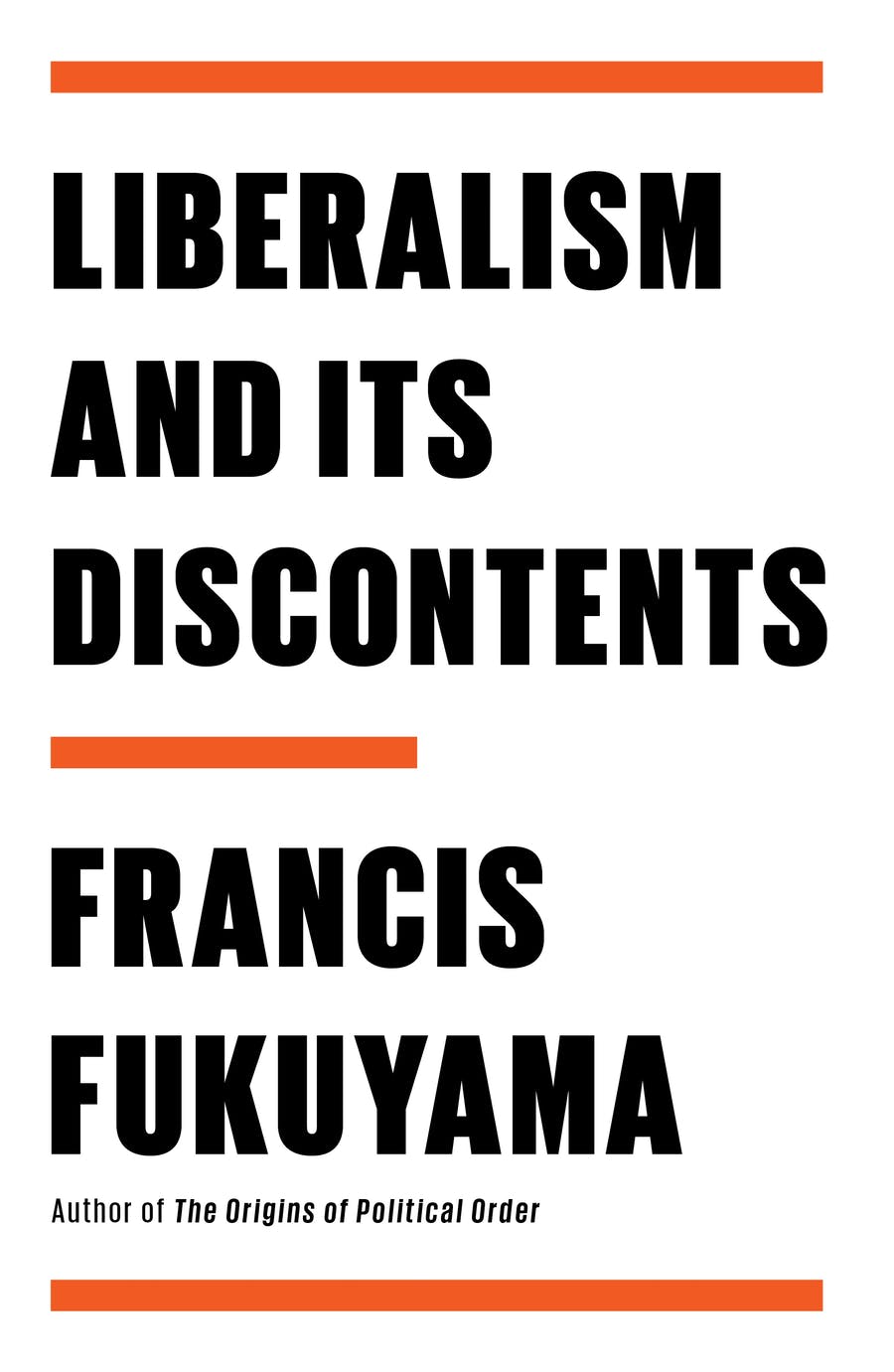

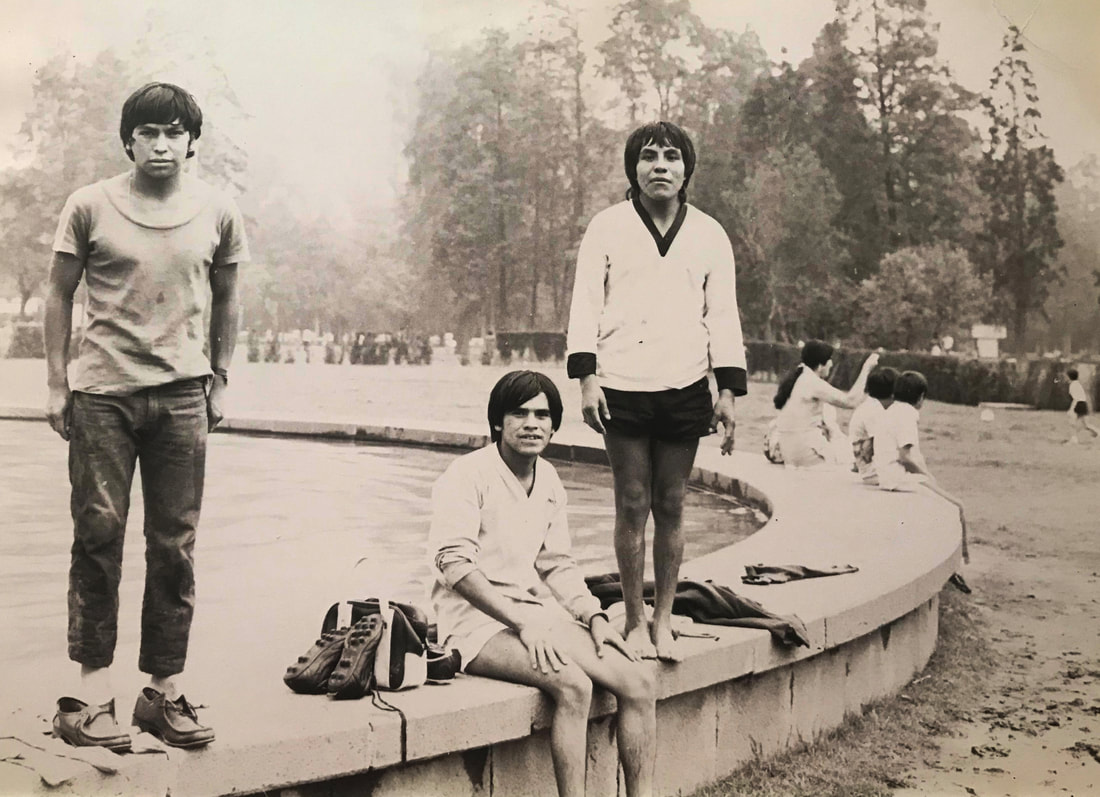

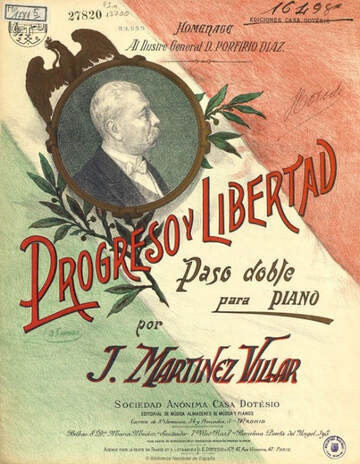
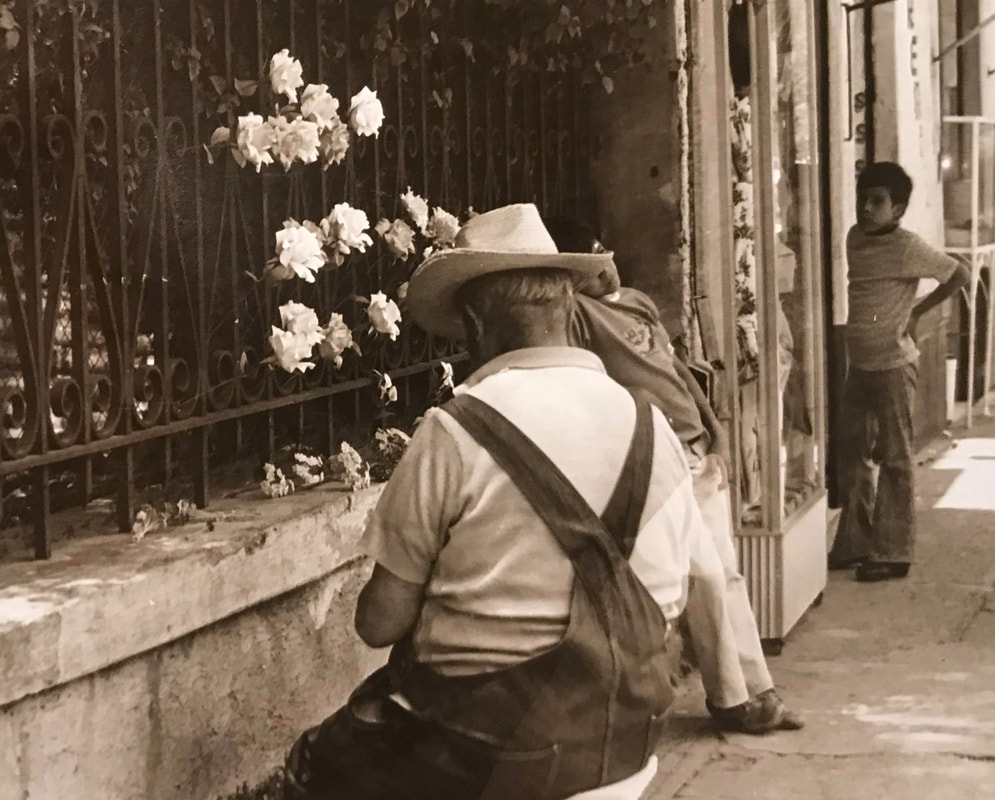
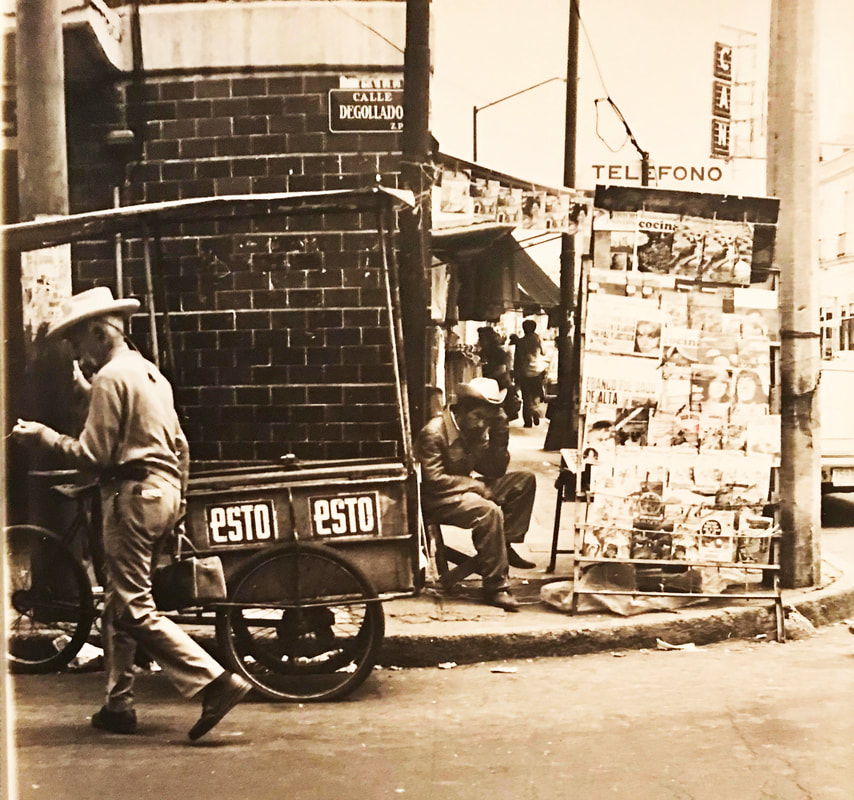
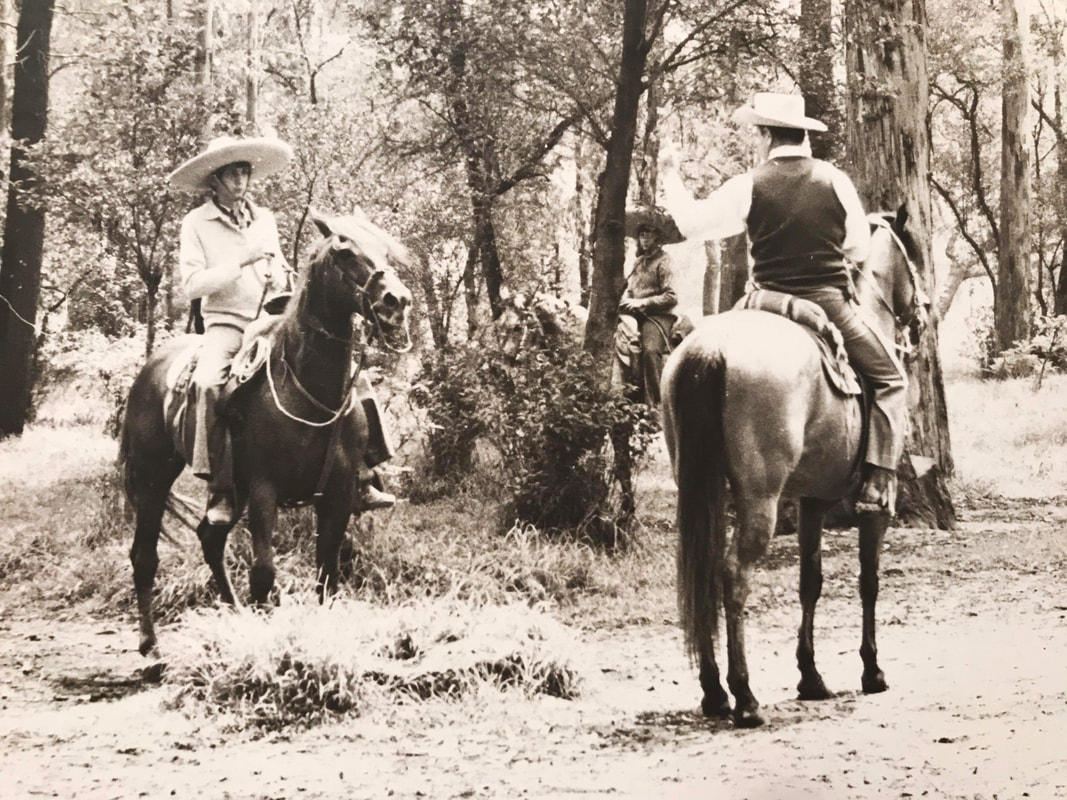






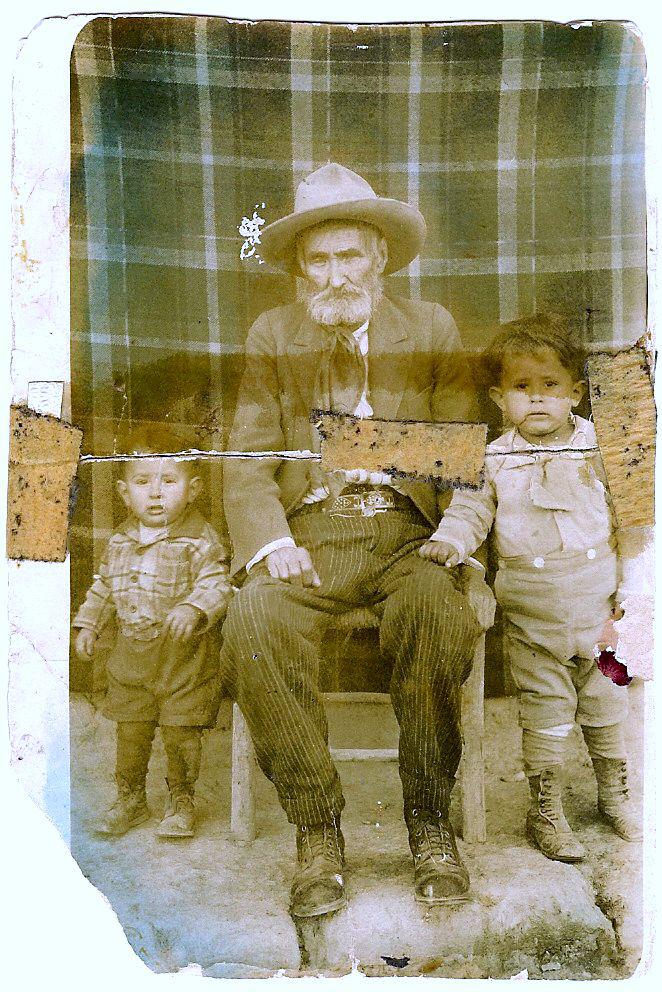


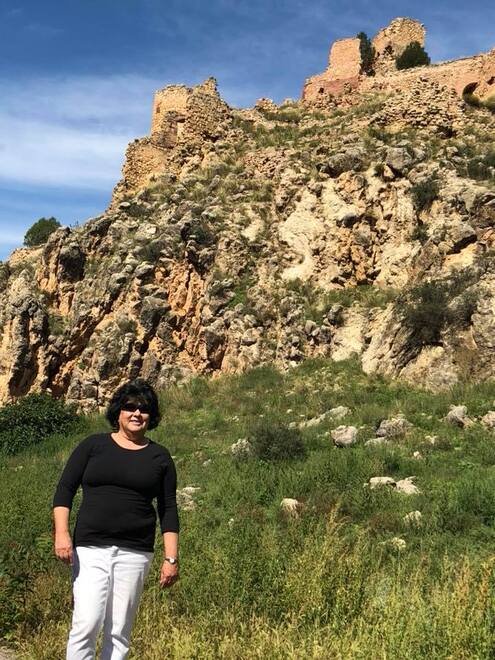




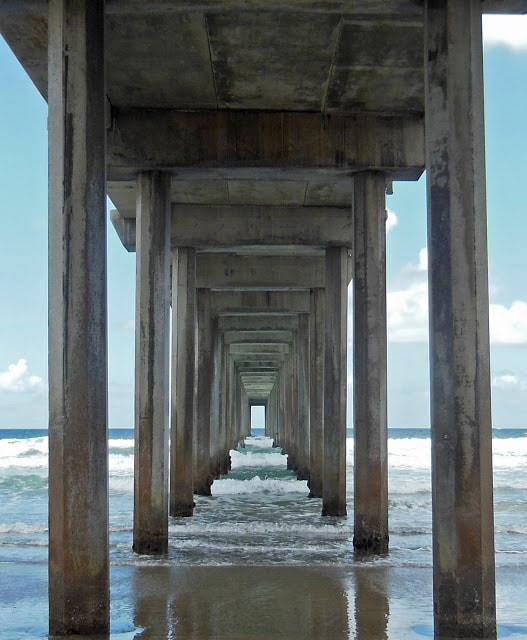





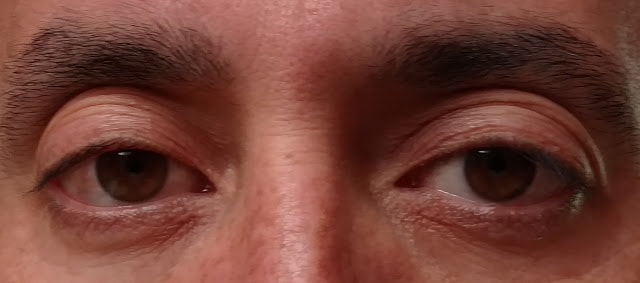


 RSS Feed
RSS Feed